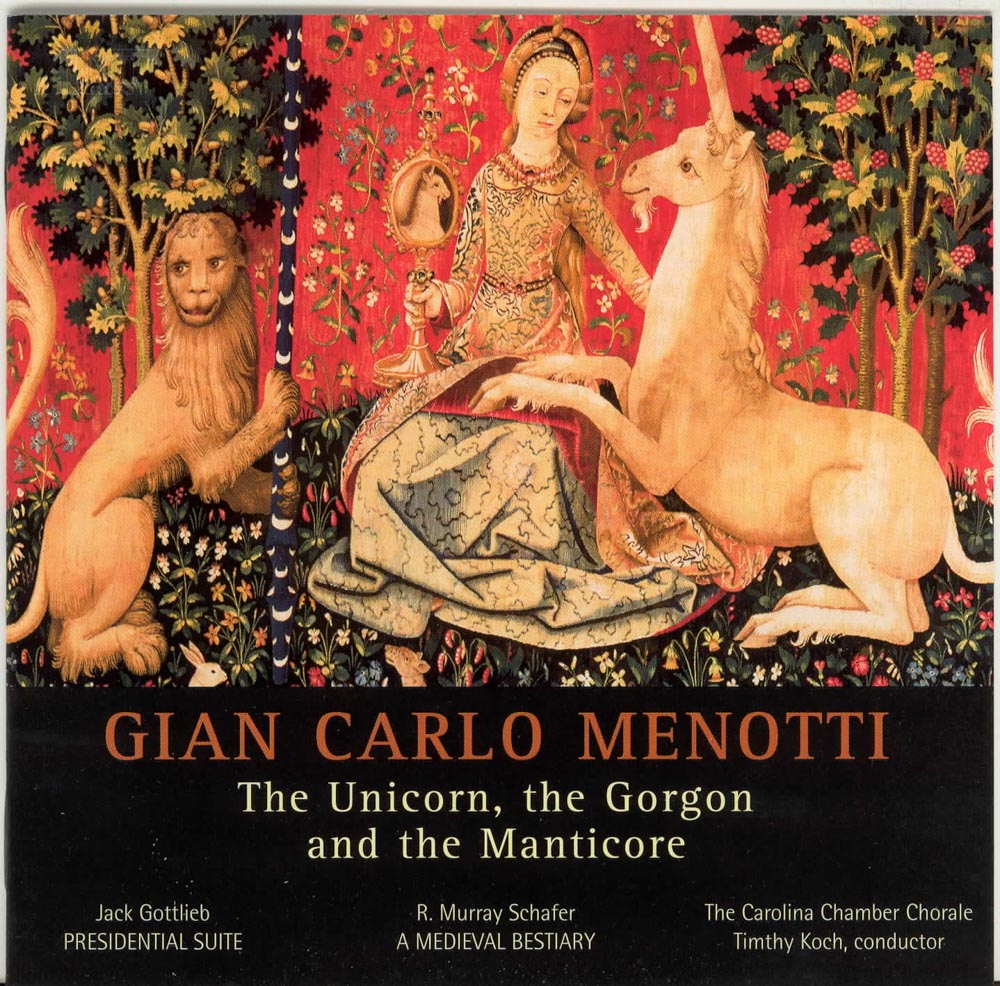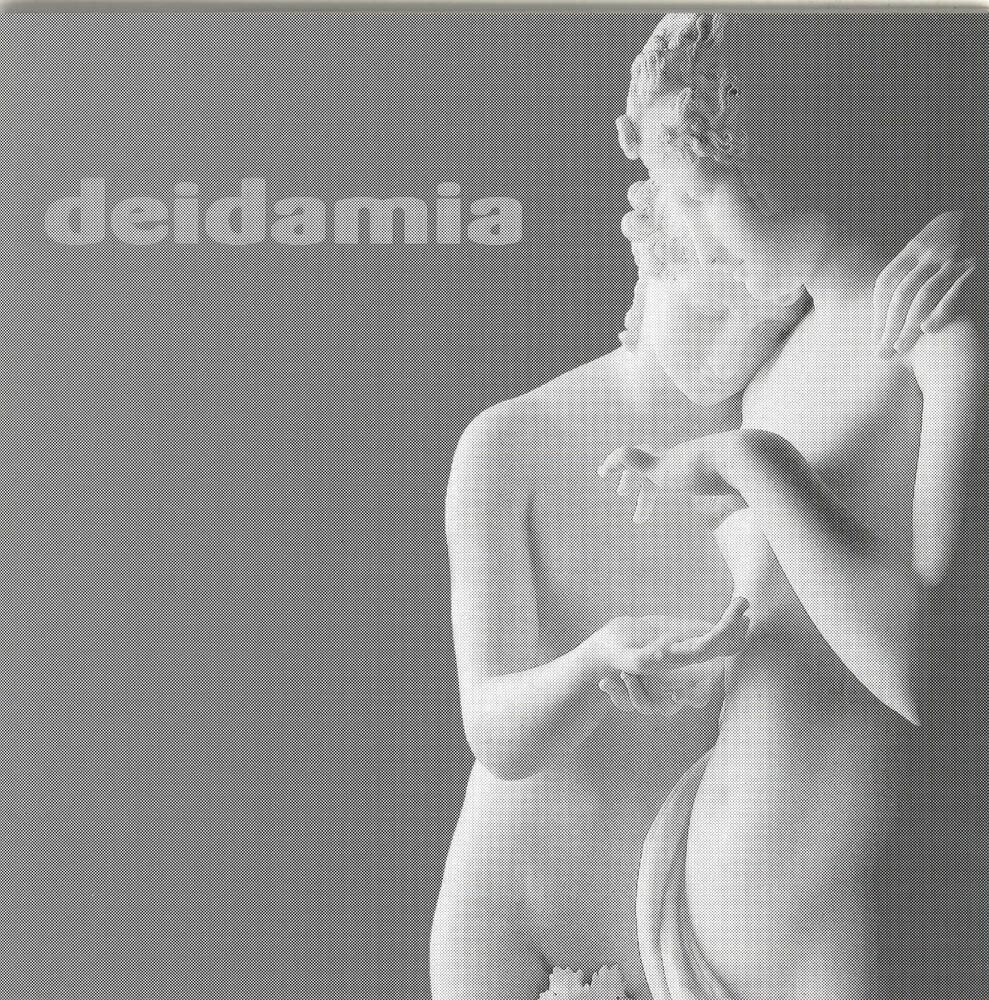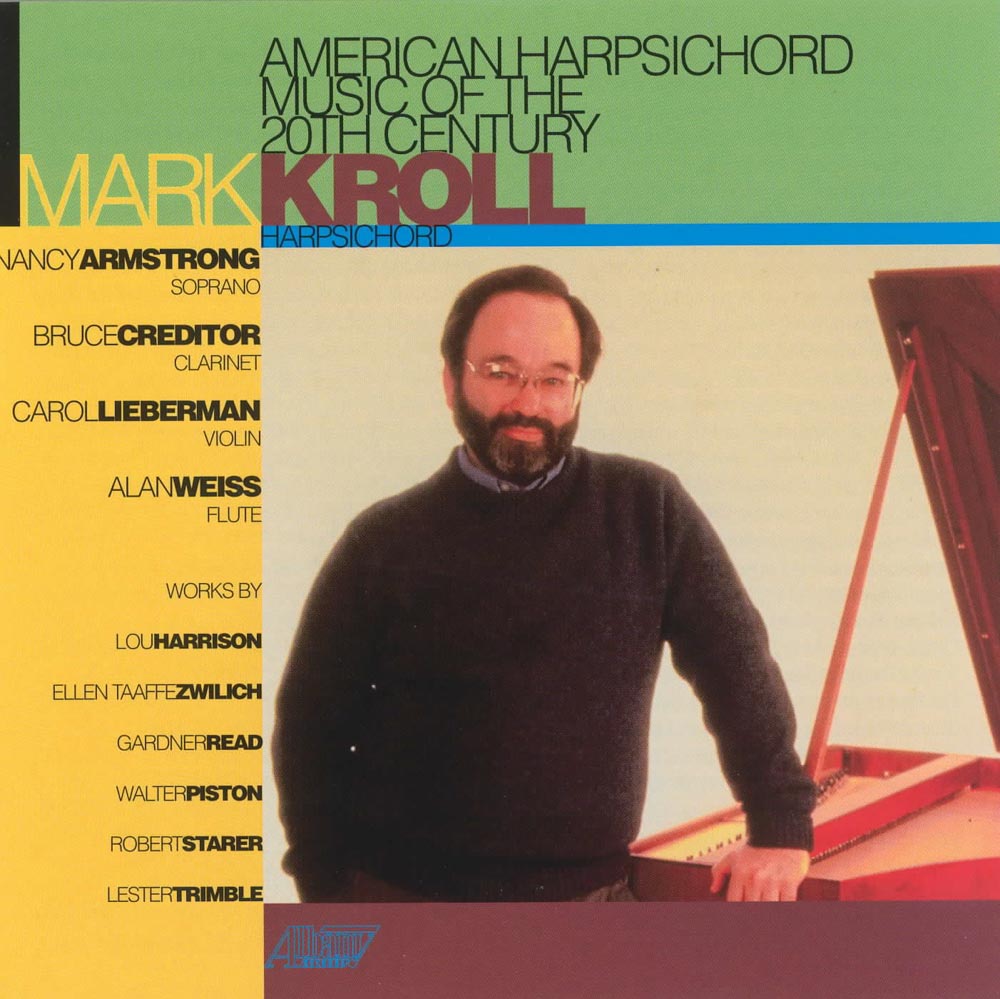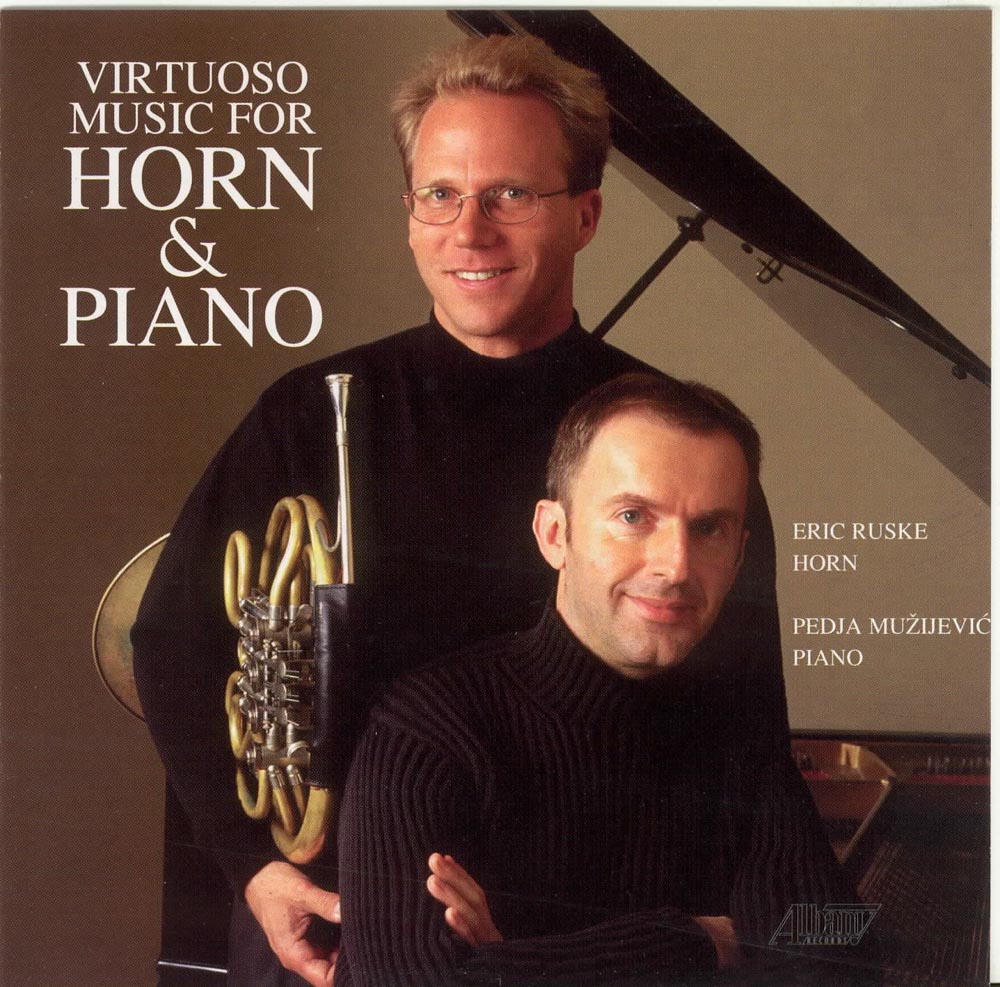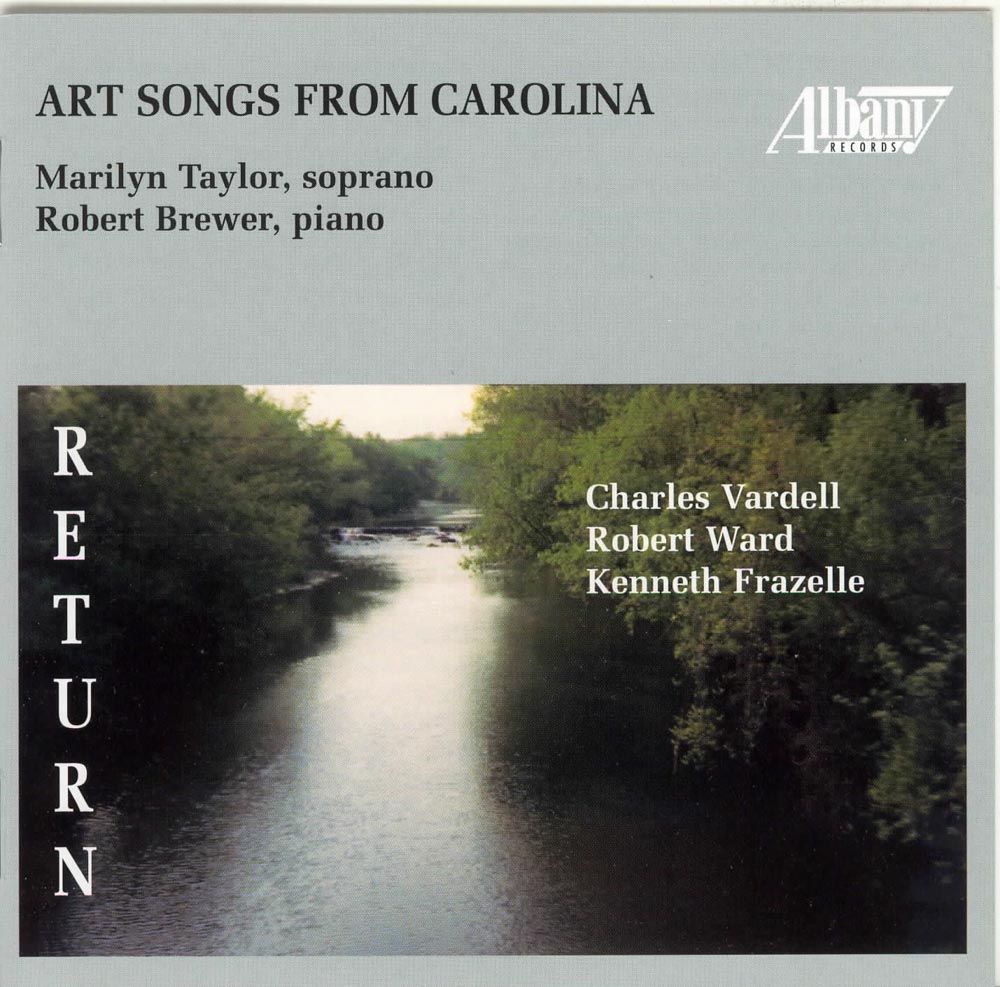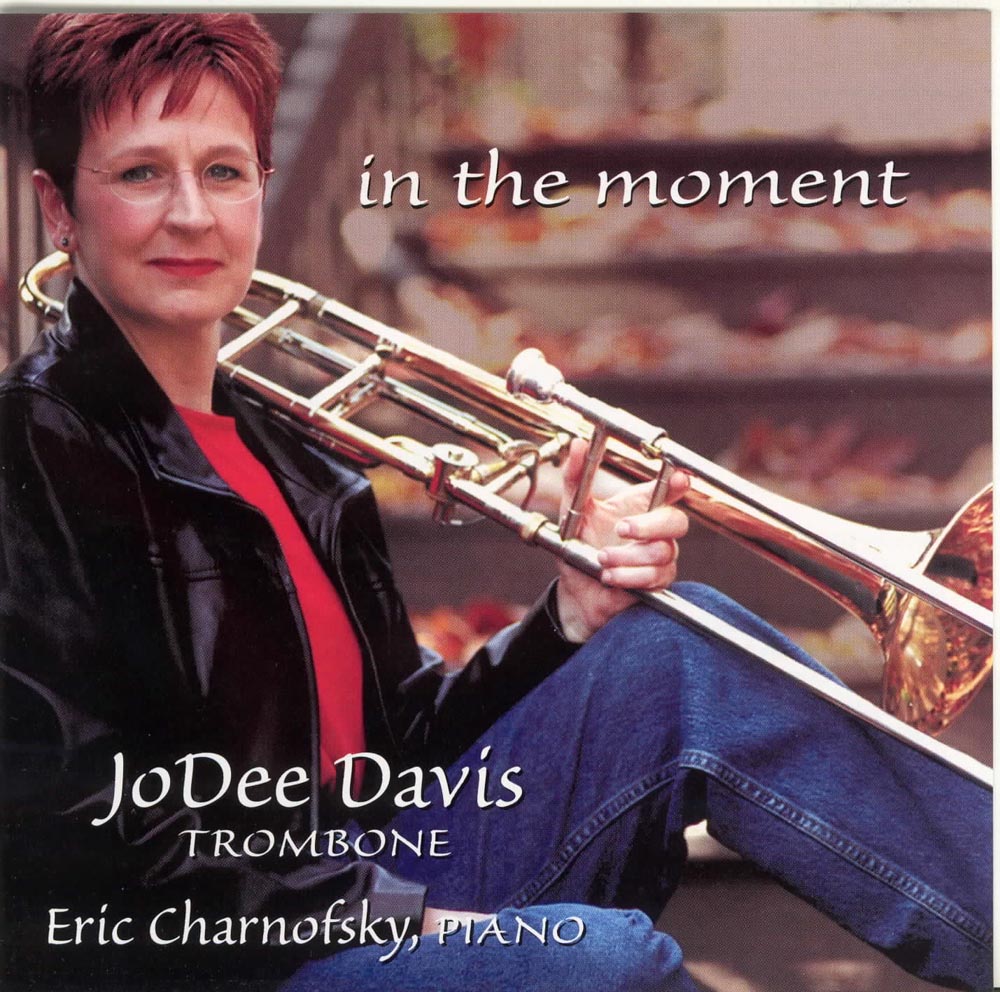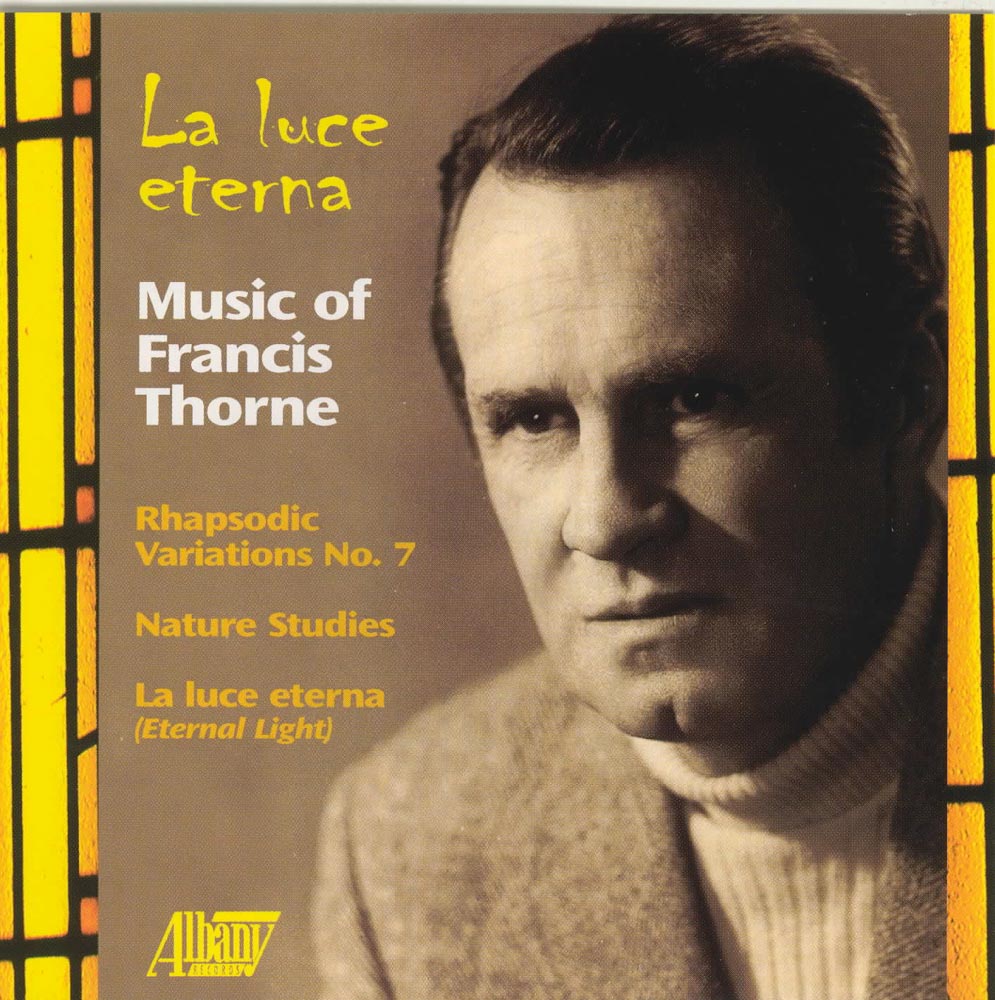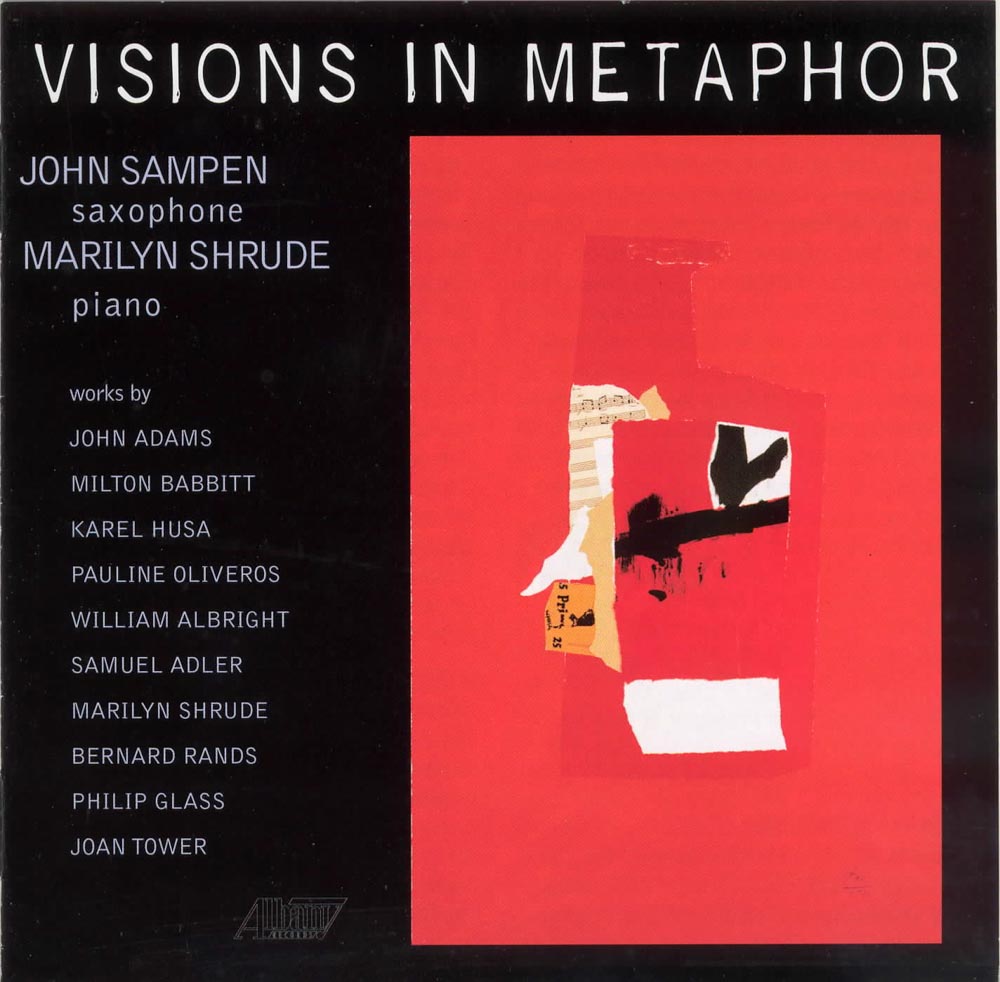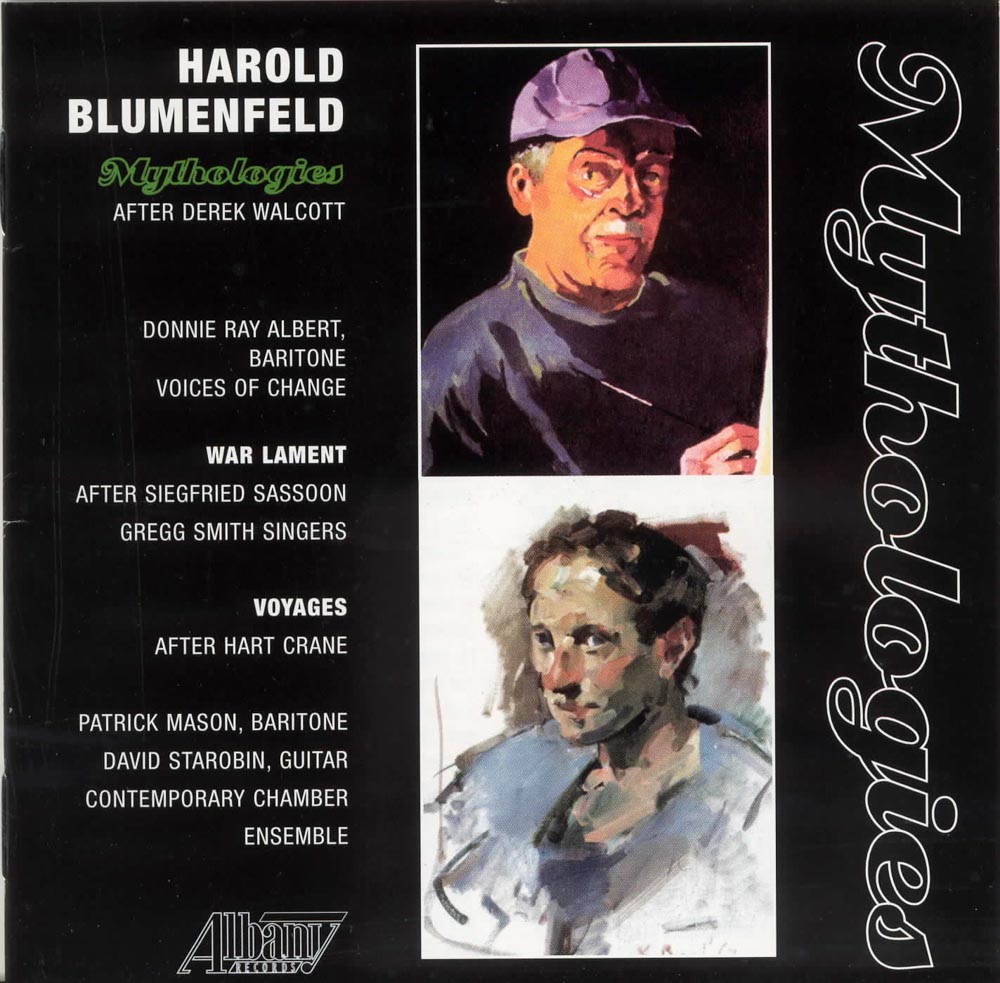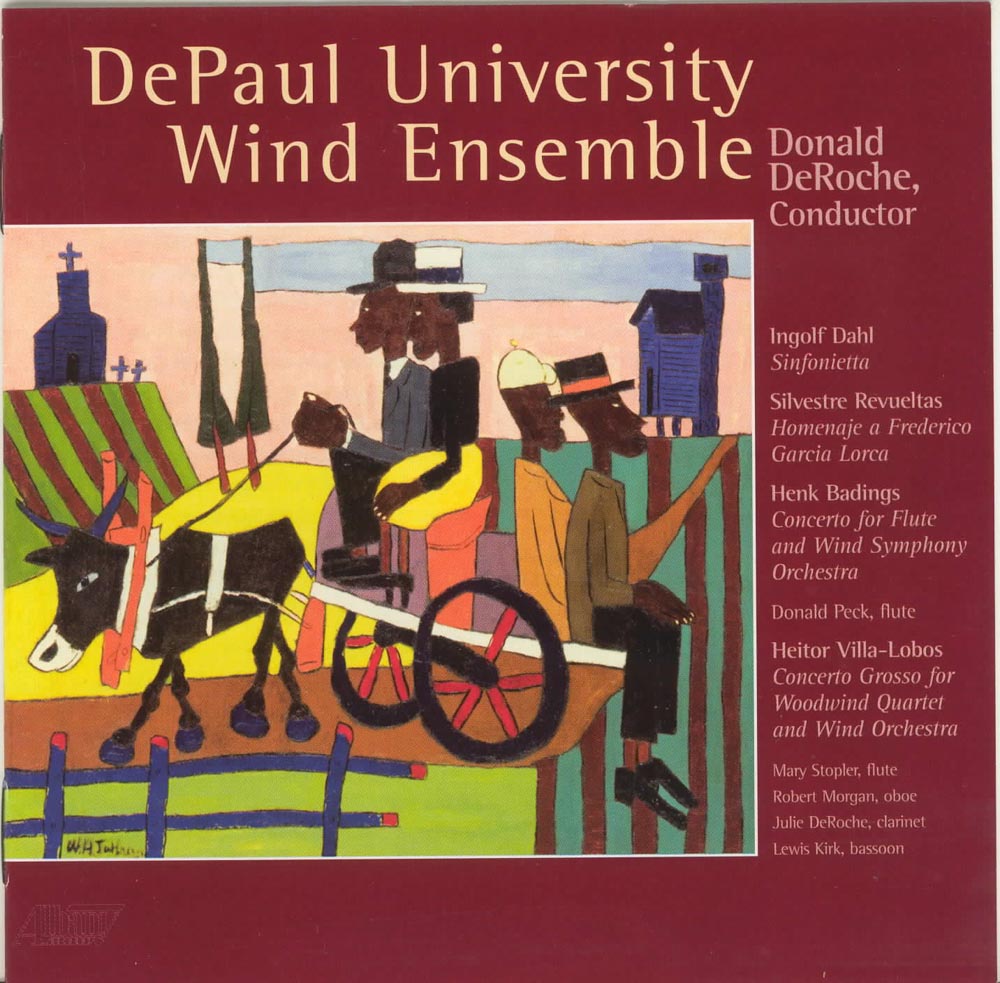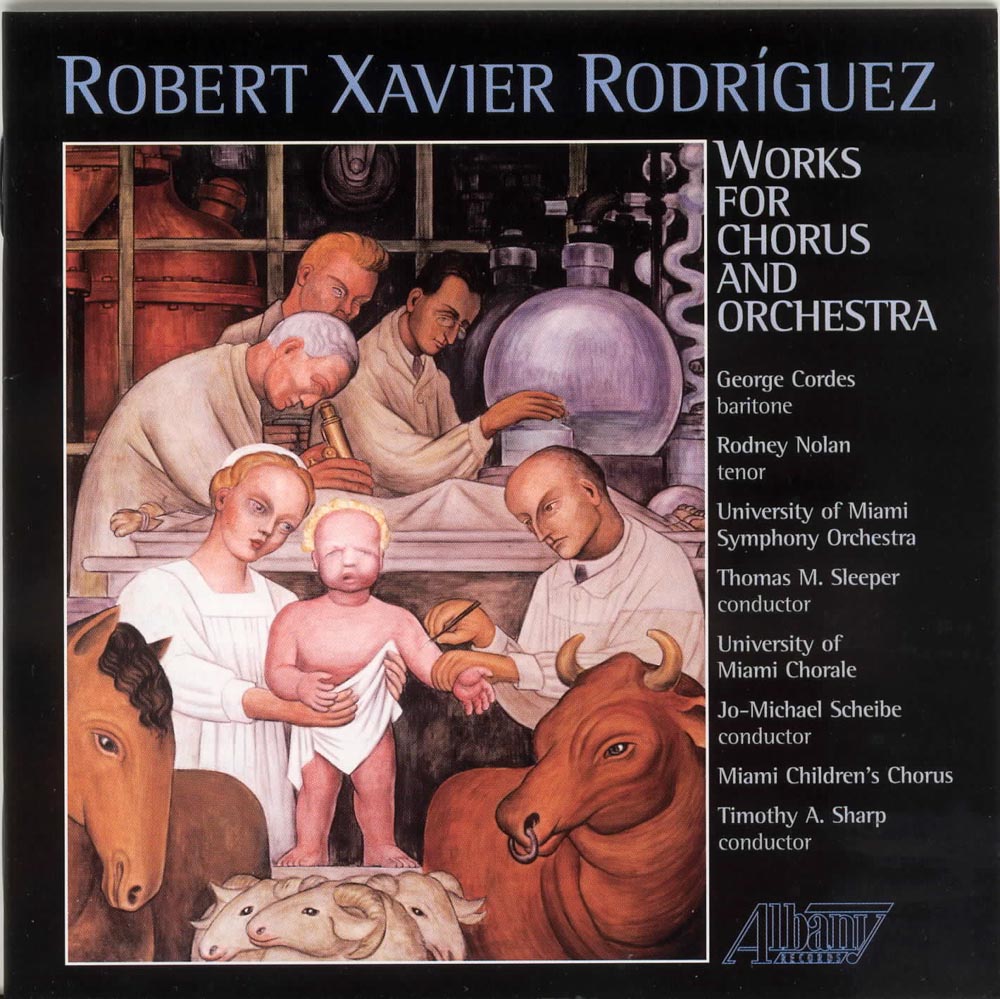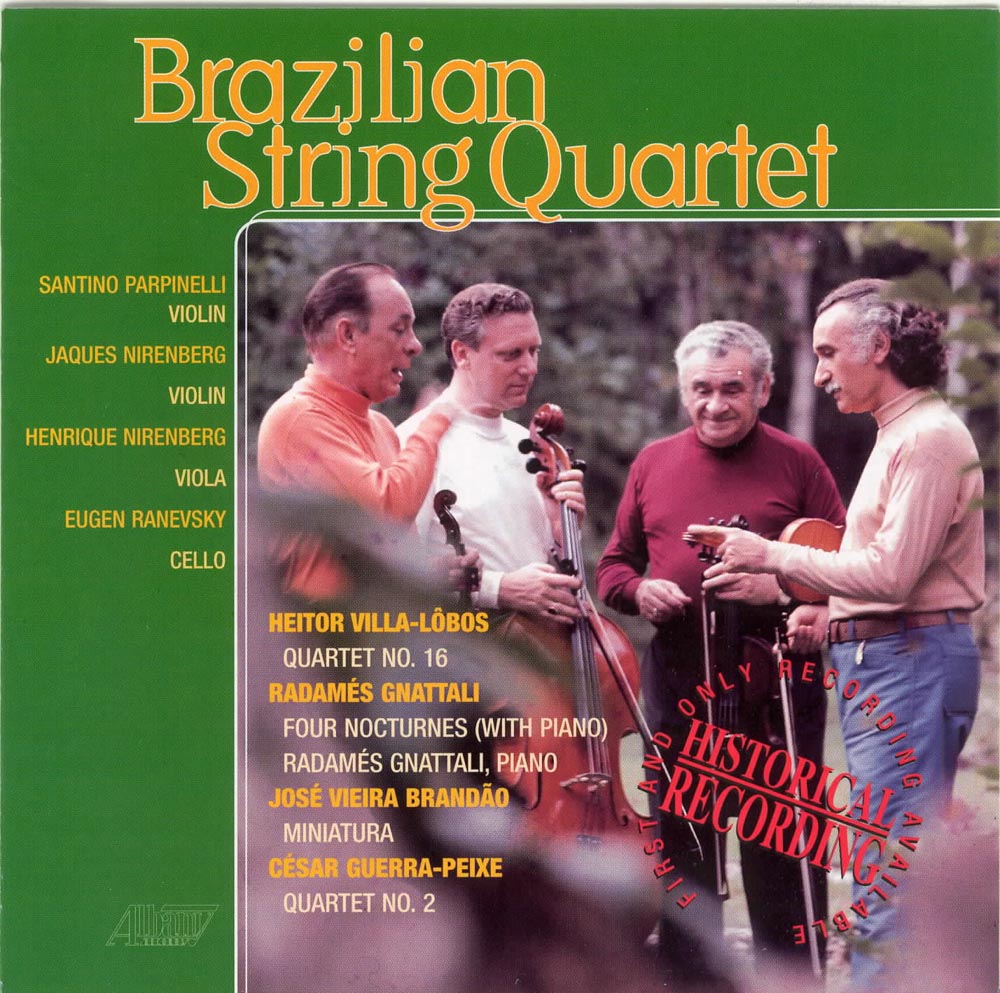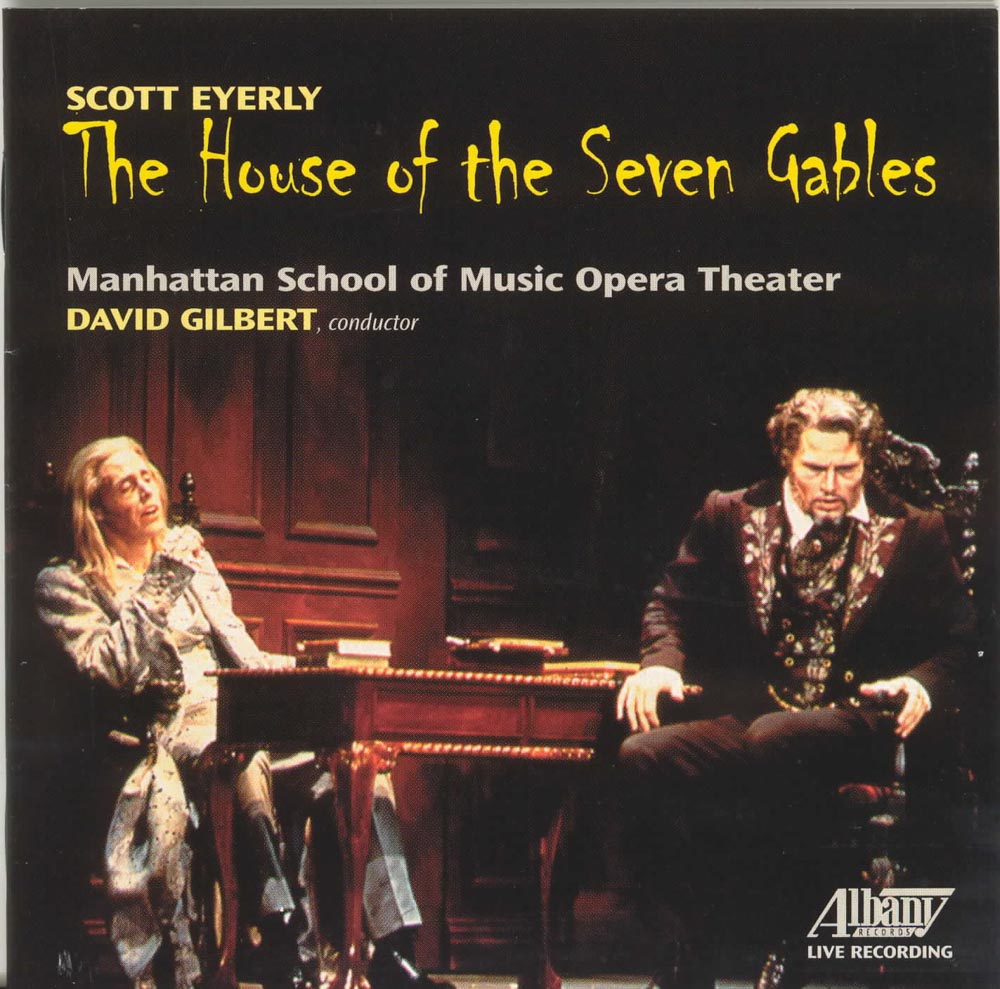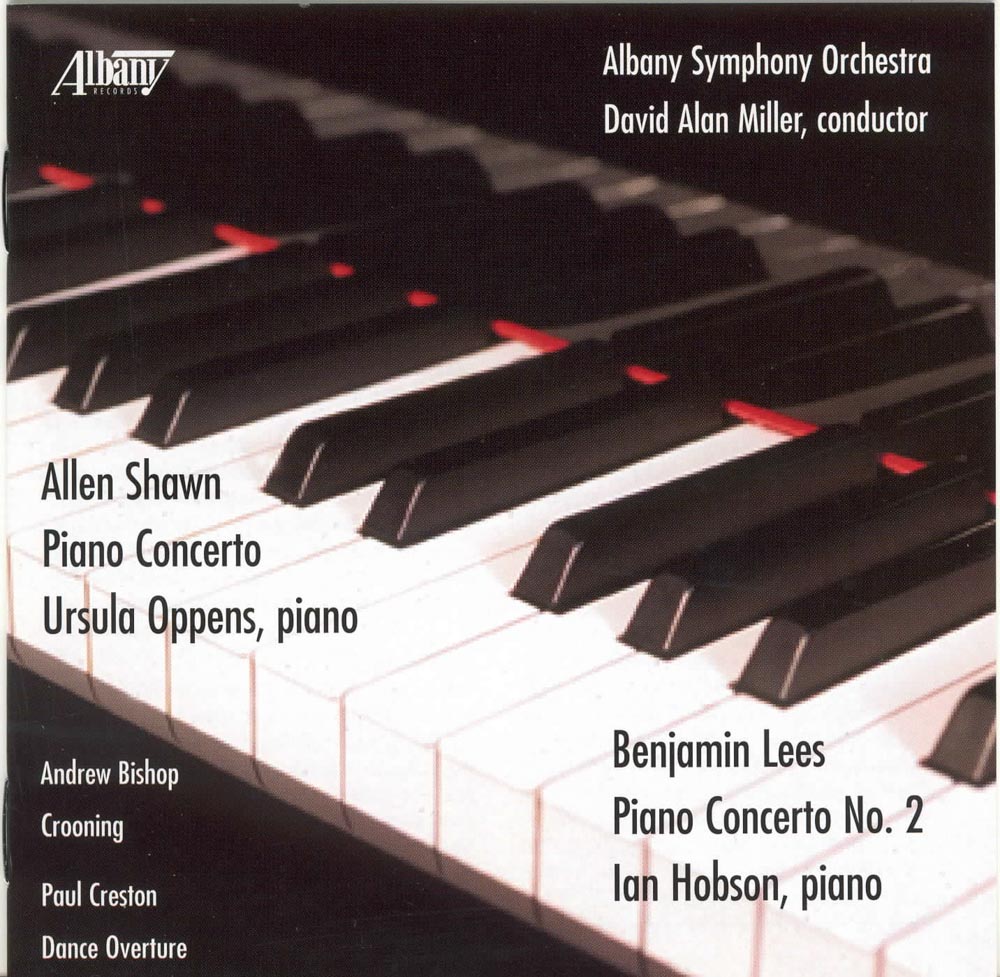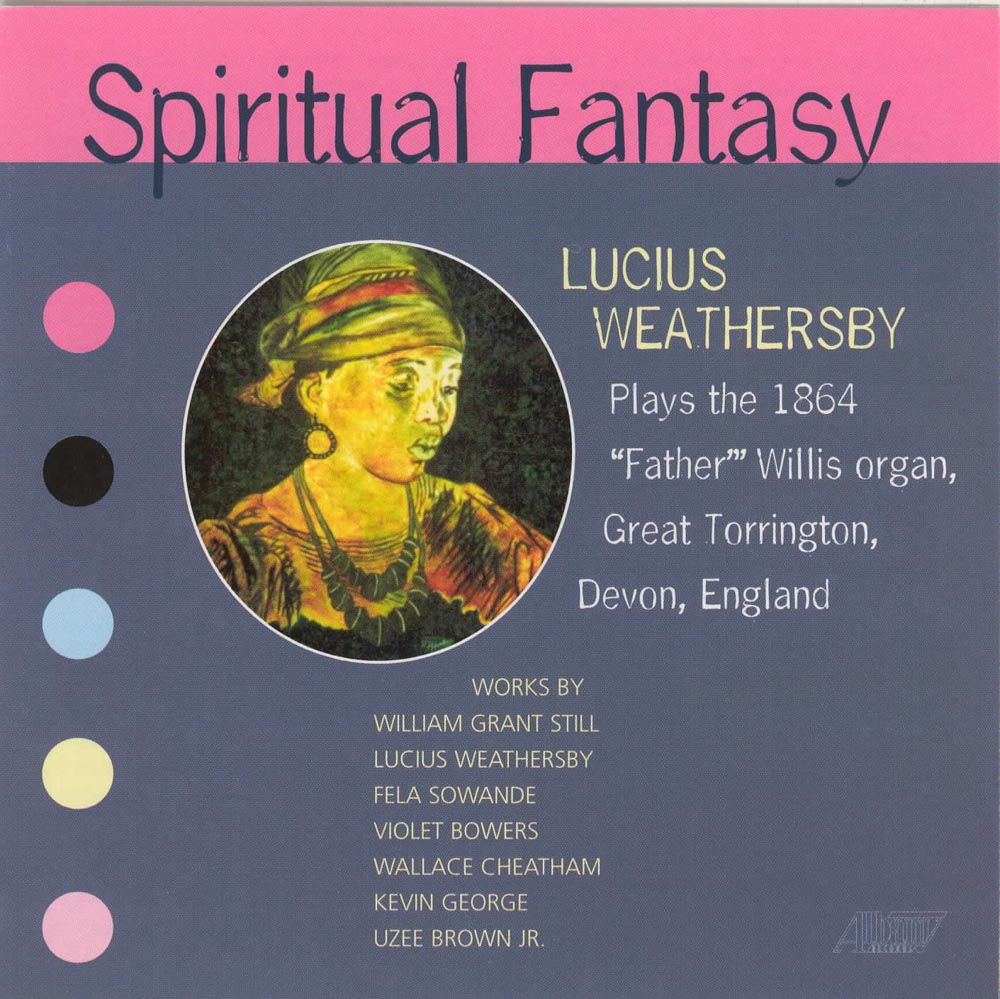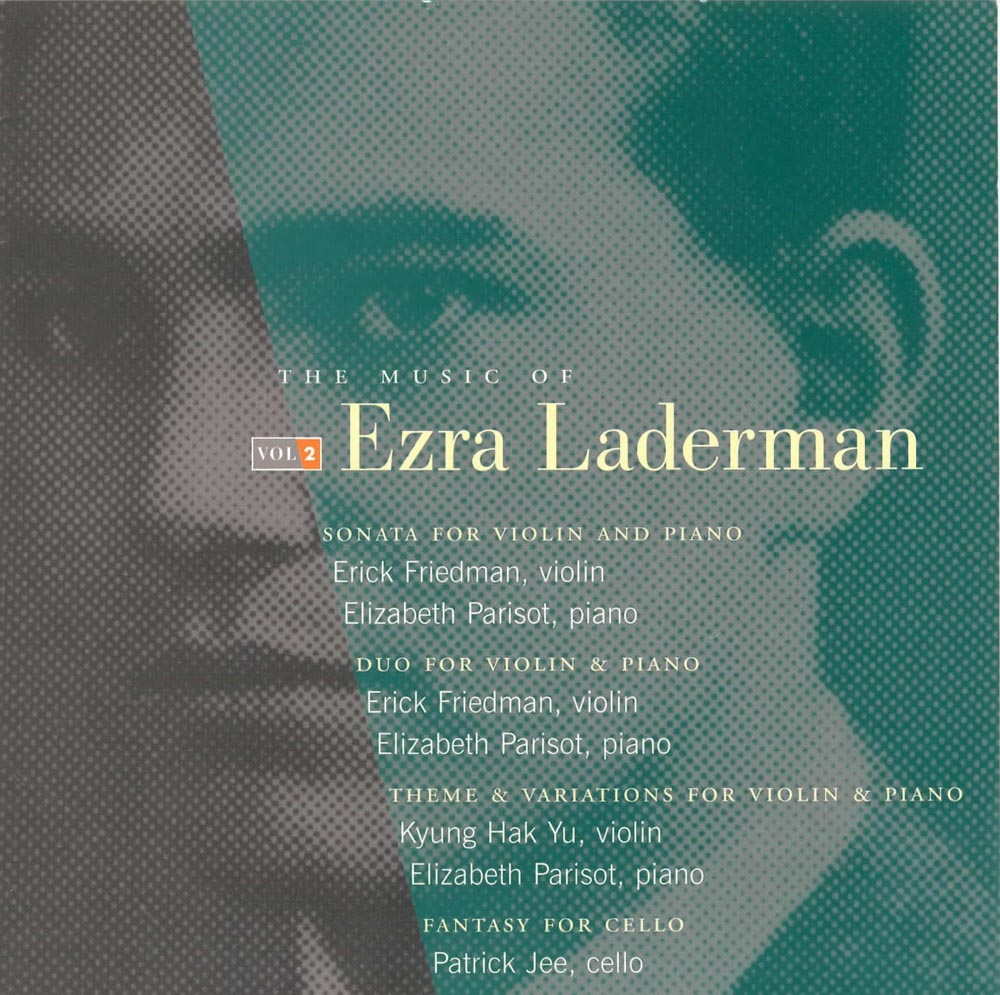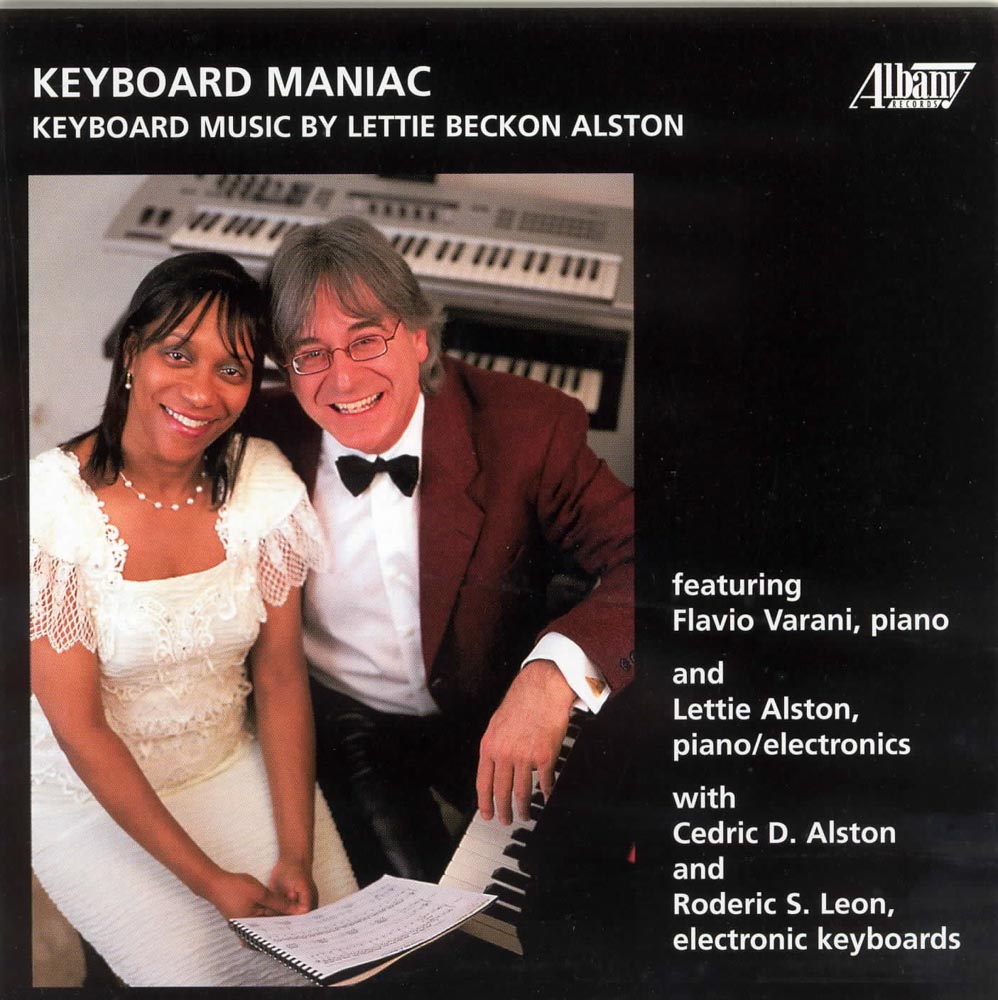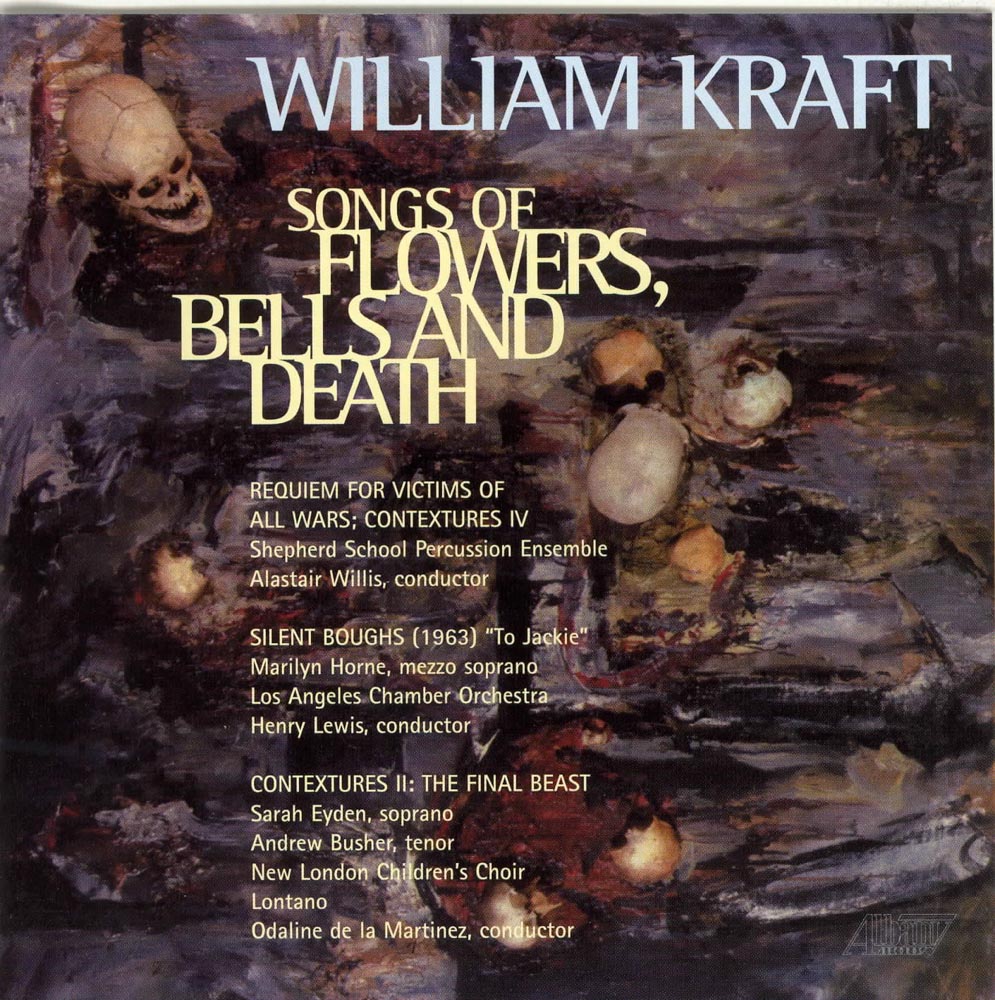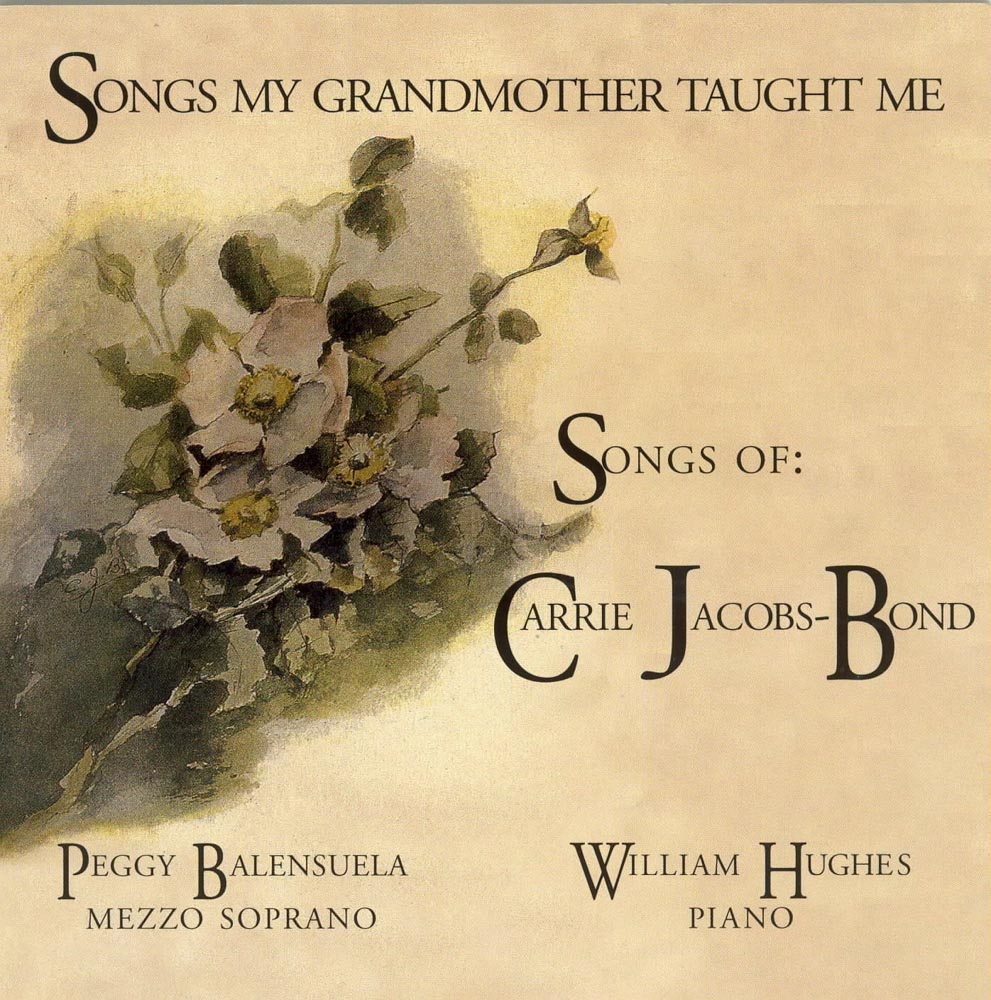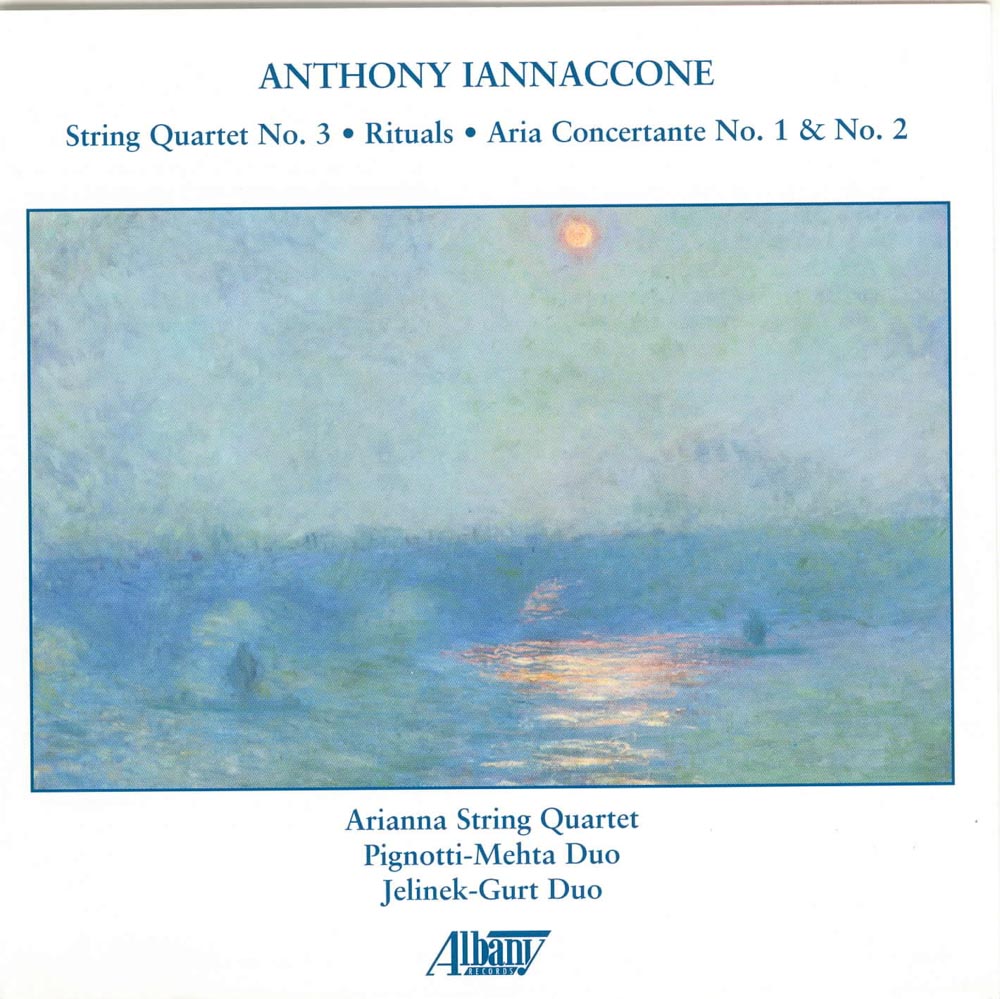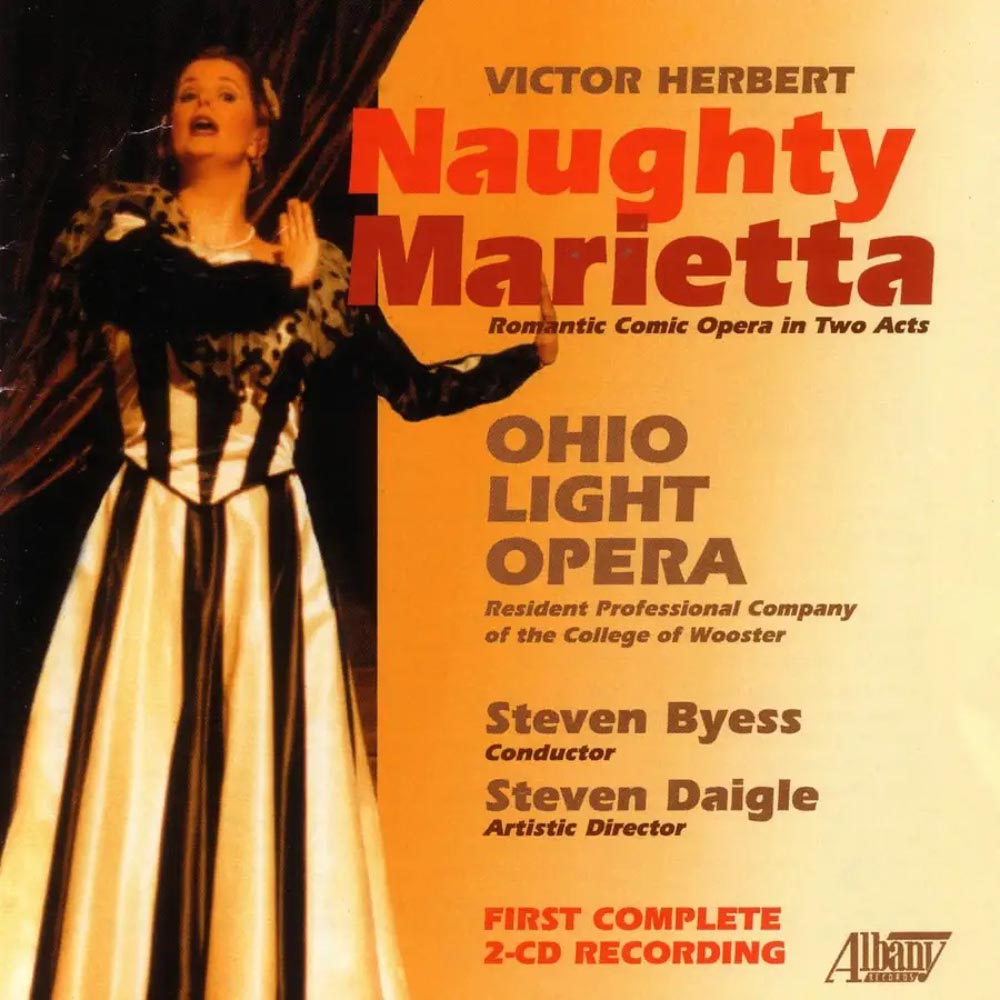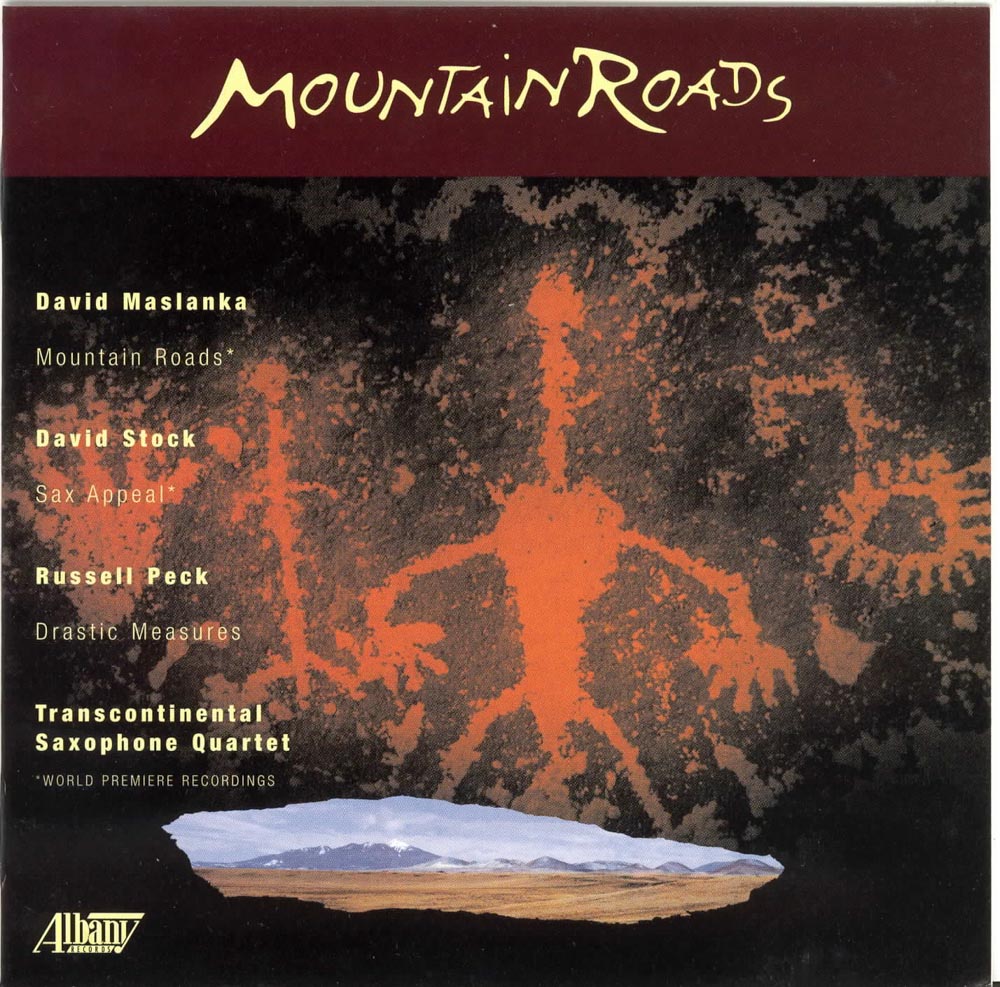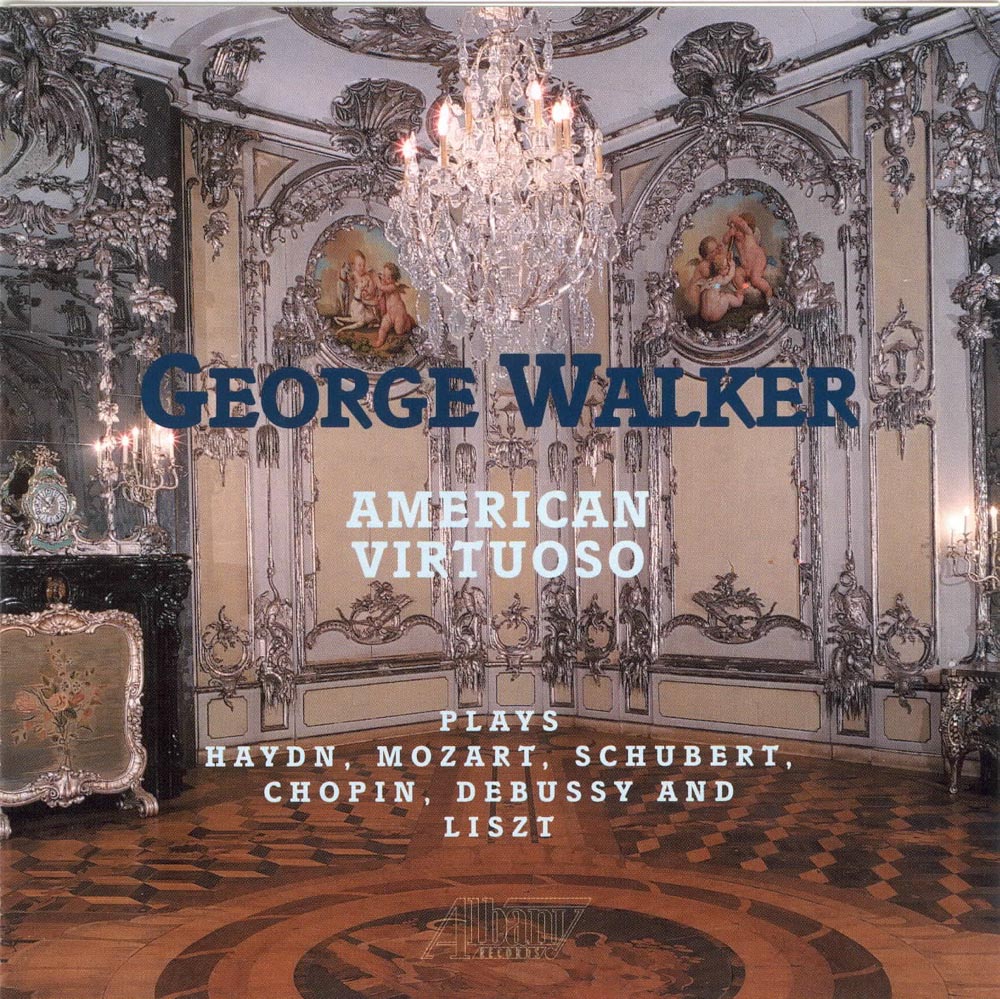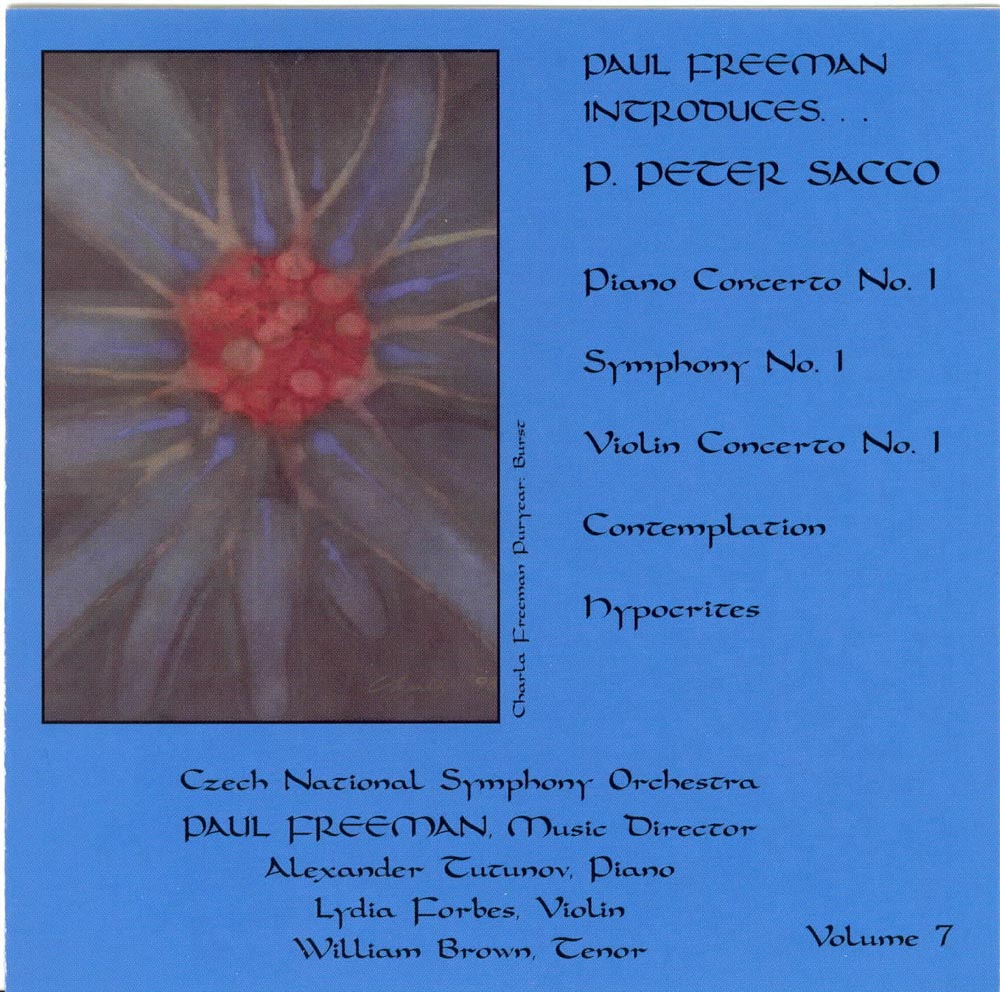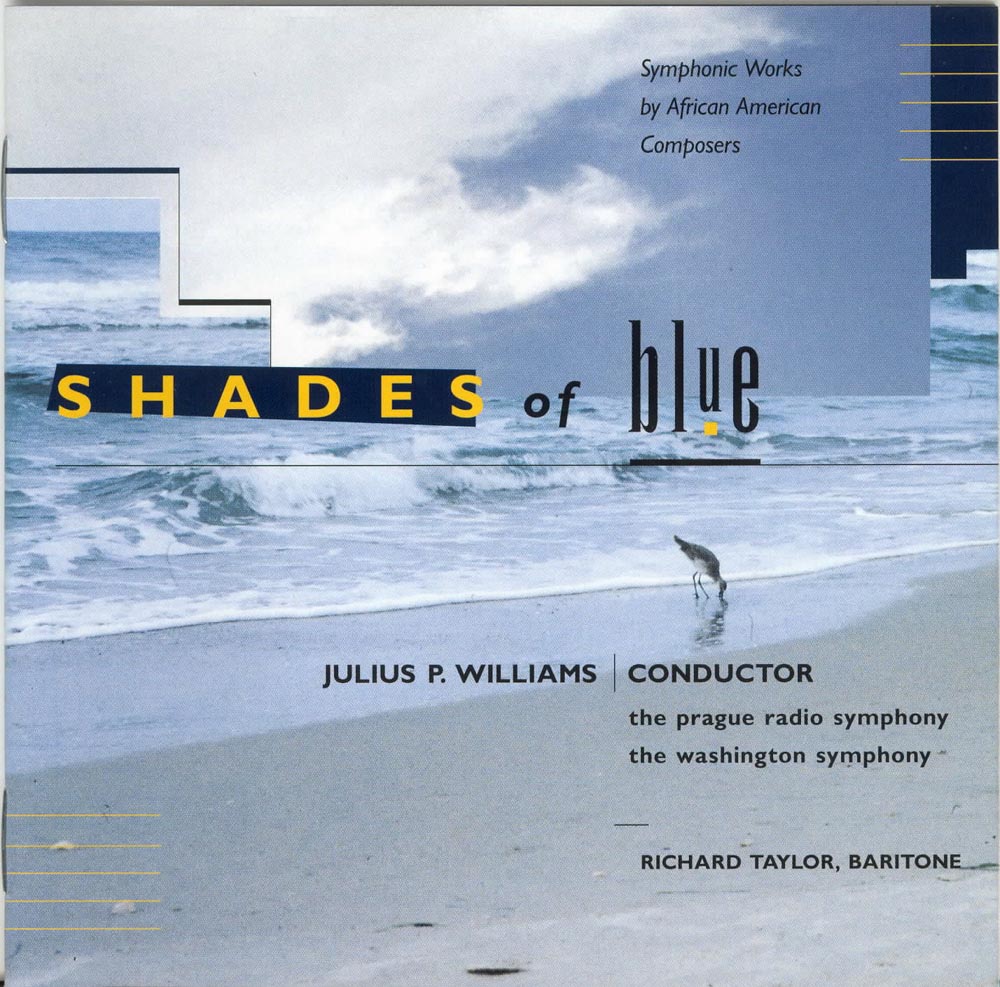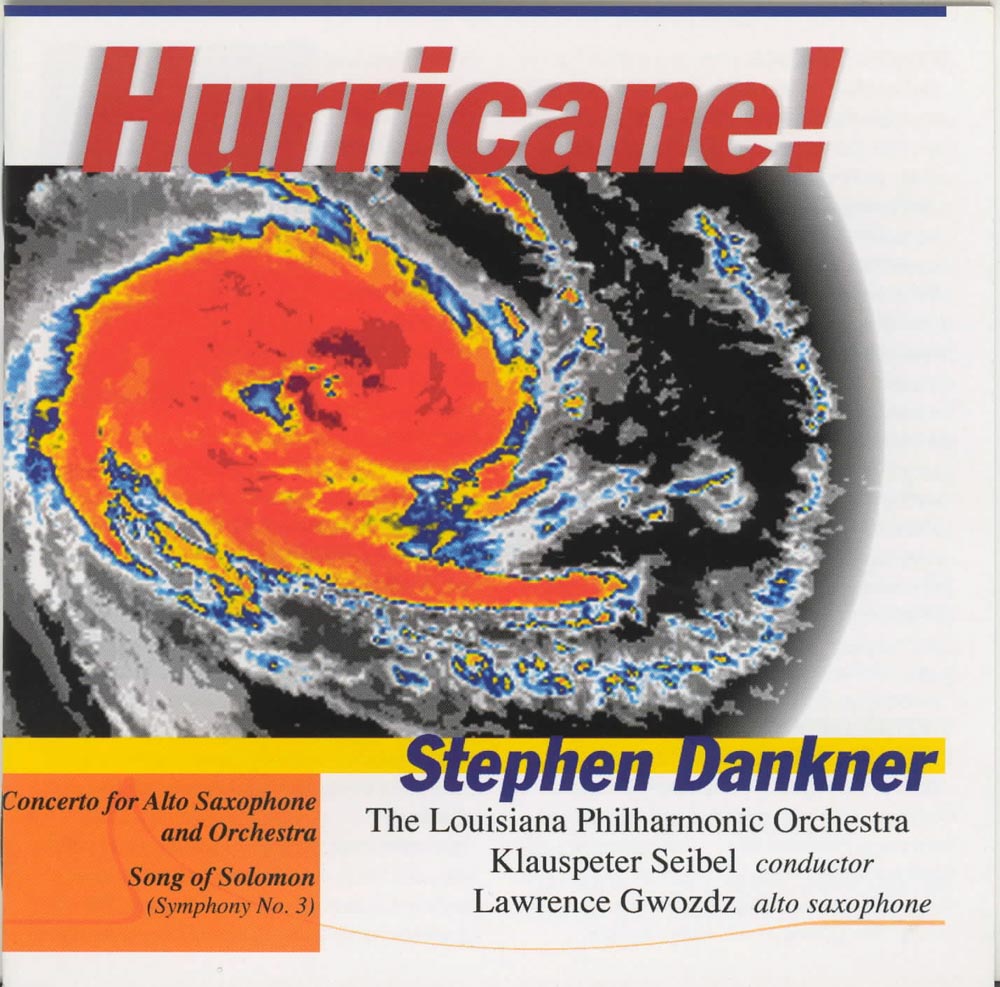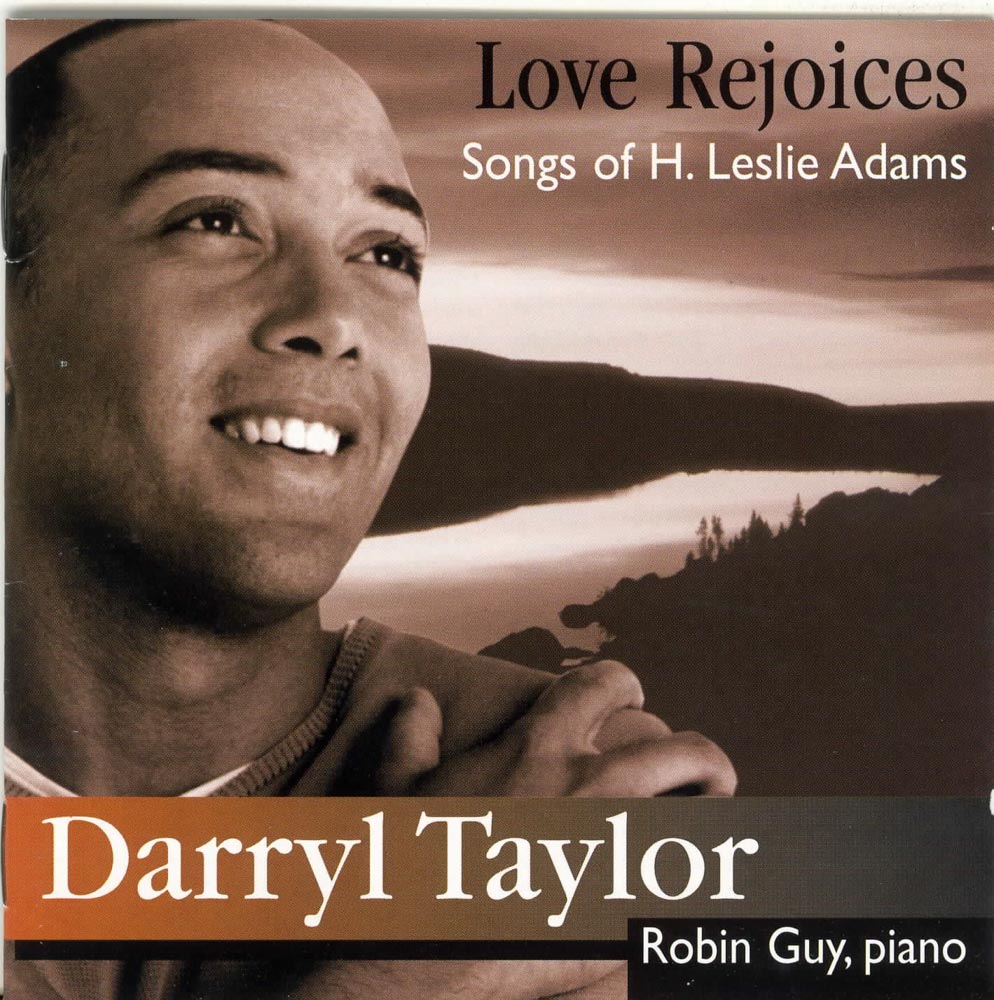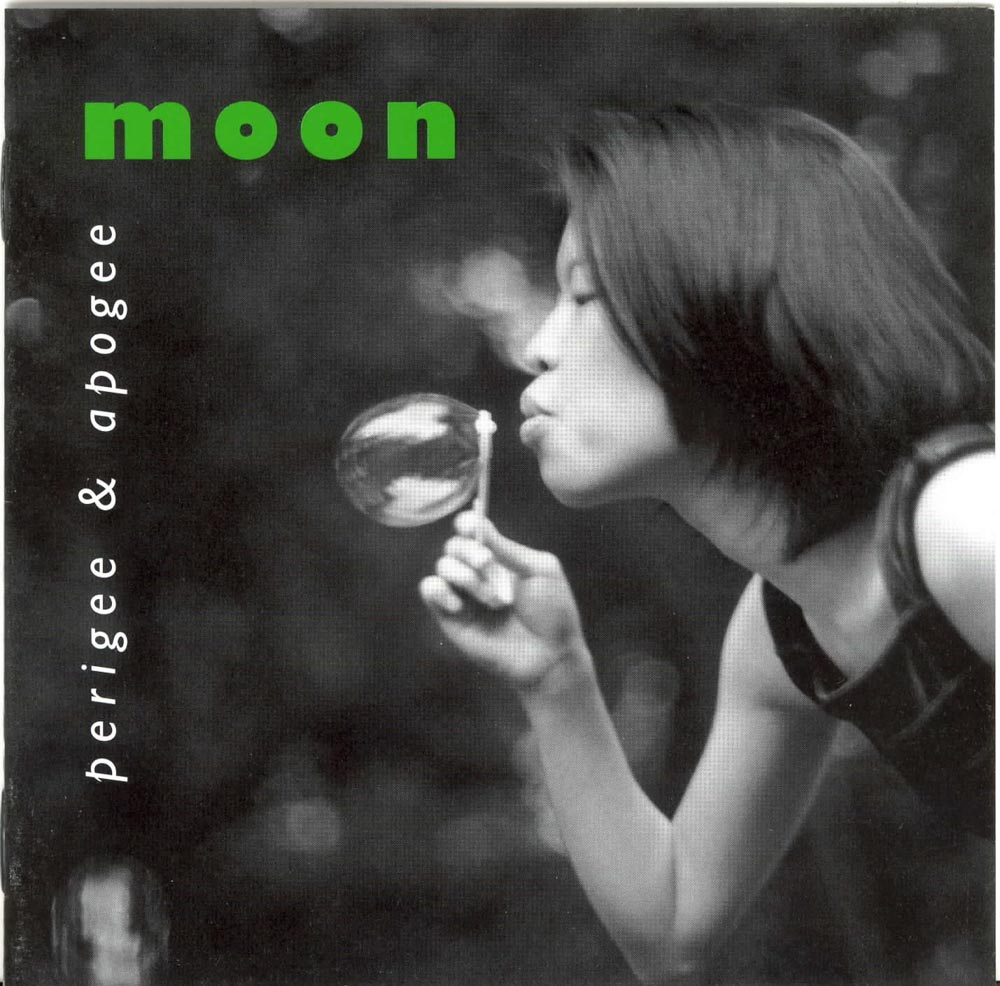Catalog #: TROY0452
Release Date: September 1, 2001Choral" In Canada, Schafer has won national and international acclaim not only for his achievement as a composer but also as an educator, environmentalist, literary scholar, visual artist and provocateur. Through his unique explorations of the relationships between music, performer, audience and setting, he has expanded the potential and appreciation of music and its place in the arts and culture of our time. The texts of the songs in A Medieval Bestiary are based on T.H. White's translation of a Latin bestiary dating from the 12th century. In the Middle Ages bestiaries were serious works of natural history. They were anonymous compilations of what was known or presumed about the characteristics and habits of animals, both real, and mythological. Because they were compiled by churchmen, the behavior of animals frequently seemed to point up an instructive moral for humans. The highlight of this disc is Menotti's The Unicorn, the Gorgon, and the Manticore. Here is one of Menotti's most accomplished works. It was commissioned by the Elizabeth Sprague Coolidge Foundation and calls for chorus, dancers and nine instrumentalists. The text focuses on a well-to-do, but eccentric man in a castle and presents his life in three stages, his youth, middle and old age. Three unusual pets symbolize these stages - a unicorn, a gorgon and a manticore. Today, in his 90th year, Gian Carlo Menotti is one of the world's finest composers. It is a pleasure to welcome this delightful music back to the catalog.
Catalog #: TROY0460
Release Date: August 1, 2001OperaHere we have the first recording of Handel's final Italian opera with a period instrument orchestra, chorus and a superb American cast. Deidamia was Handel's last opera. He began work on it in October, 1740, at the same time he was completing its companion work, Imeneo, which he had begun two years earlier. On November 8, Handel presented his London winter season - with some new works, some revivals - and for this purpose had engaged the Theatre Royal at Lincoln's Inn Fields. Opening night saw a semi-staged version of the serenata Il Parnasso in festa; later in the month came the premiere of Imeneo. Despite a superb score and fine cast, the production was a failure and was offered only once again in early December. The fact is that opera - Italian opera - was passe in London by this time. The public had turned to other musical delights - stage works in English of a more frivolous nature than Handel's offerings. For serious entertainment, the sacred oratorio, also given in the native tongue, was becoming increasingly popular. Thus, the true merits of Handel's last two operas were ignored at their premieres: Imeneo and Deidamia really never had a chance. For the libretto, Handel turned to his long time collaborator Paolo Antonio Rolli, who devised a "dramatic skeleton" for the composer of the Ulysseys-Achilles-Deidamia legend. As entertaining as the plot was, the new opera met the same fate as Imeneo. So indifferent was the public that it was only presented twice more, January 17, and February 10, 1741. Thereafter, Handel substituted more sure-fire oratorios. Handel was discouraged by the failure of his new stage works. Whether he would have attempted a further London season or ever written another Italian opera was decided by the extraordinary success in Dublin later that same year of a new English-language work he presented to the world. Messiah would change the course of his life. Its reception gave Handel nearly another two decades of celebrity and began a particularly fertile period of composition. Deidamia went by the wayside completely until this wonderful new recording with this first class American group of singers.
Catalog #: TROY0457
Release Date: August 1, 2001ChamberThe harpsichordist Mark Kroll has long been recognized as one of the central figures in the field of historical performance and early keyboard instruments. During a career spanning over 50 years, he has concertized worldwide as a harpsichordist and fortepianist, winning critical acclaim for his virtuosity and expressive playing. His many recordings include solo repertoire, violin and keyboard music with Baroque violinist Carol Lieberman, and world premiere recordings of Hummel's transcriptions of Mozart symphonies. As an educator he has served as Professor and Chair of the Department of Historical Performance at Boston University since 1977, and he is frequently invited to teach as guest professor at music academies such as Wurzburg. This is his first recording of a disc devoted to just contemporary music and it is most welcome. How many remember the wonderful recording of the beautiful Trimble piece on Columbia in their modern American music series? This new performance is just as stunning and most welcome.
Catalog #: TROY0456
Release Date: August 1, 2001ChamberHorn soloist Eric Ruske has established himself as an artist of international acclaim. Named associate principal horn of the Cleveland Orchestra at the age of 20, his impressive solo career began when he won the 1986 Young Concert Artists International Audition at 22. In 1987, he won the first prize in the American Horn Competition, and in 1988, the highest prize in the Concours International d'Interpretation Musicale in Reims, France. Mr. Ruske gave the 1990 world premiere of Gunther Schuller's Concerto for Horn and Orchestra with the San Antonio Symphony with Mr. Schuller conducting. He has performed as soloist with the Cleveland Orchestra, the Baltimore Symphony, the Indianapolis Symphony, the Milwaukee Symphony and the Boston Pops. Mr. Ruske was educated in his native Croatia and at Juilliard and the Curtis Institute.
Catalog #: TROY0427
Release Date: August 1, 2001VocalMarilyn Taylor writes: "My voice sat down in this music. It kicked its shoes off and felt cold bare earth and said 'this is home.' The events leading to the creation of this disc took place over many years. A motivating factor in producing it was bringing the songs of Charles Vardell to light, as well as other unrecorded works of composers either born, or living in North Carolina. Synchronicity has proven that a link exists between myself and each group of songs, sometimes becoming obvious only after the fact. Moving to Winston-Salem in 1992 to teach at the North Carolina School of the Arts was made easier because the terrain and homes reminded me of Louisville, Kentucky, my birthplace. Here I discovered I share with Frazelle and Vardell a love of land and hills and an appreciation of rural life and music, instilled in me by childhood visits to relatives in 'the country' and long jaunts in the woods there. The songs of Robert Ward do not evoke these types of images; however, a connection between Millay (from whom the text is taken) and myself exists in the passion for a younger man, which in my case became a marriage and a musical collaboration lasting fifteen years."
Catalog #: TROY0464
Release Date: July 1, 2001ChamberJoDee Davis is professor of trombone at the University of Missouri-Kansas City Conservatory of Music and second trombone of the Santa Fe Opera. She has served on the faculties of Kent State University, where she was a member of the Kent Brass Quintet, and Eastern Washington University. Formerly principal trombone of the Spokane Symphony, Dr. Davis has also performed with a number of other orchestras including the Akron, Canton and Youngstown Symphony Orchestras in Ohio, and the Spoleto Festival Orchestra. She has presented solo recitals and master classes throughout the United States and has performed and given clinics at International Trombone Festivals, the Eastern Trombone Workshop, the Mid-West International Band and Orchestra Clinic, the Arizona Low Brass Symposium, and the Ohio and Texas Music Educators Conferences. She received the Doctor of Music degree in BrassLiterature and Performance from Indiana University, and the Masters degree in Trombone Performance and Bachelor of Music degree in Music Education from the University of Northern Iowa. Ms. Davis is a clinician for the Selmer Company, Inc. The compositions gathered for this recording represent some of the best works from the trombone literature, as well as some outstanding transcriptions. Ms. Davis gives the listener a colorful, engaging feast of music and talent.
Catalog #: TROY0451
Release Date: July 1, 2001ChamberPreeminent in the American musical landscape not only as an artist but also as an administrator, Francis Thorne was born in Bay Shore, New York in 1922. A self-taught jazz pianist, he had hoped for a professional career in music but was deterred by active naval duty in World War II, a young family to support and a dismissive appraisal at Yale by the redoubtable Paul Hindemith. So for several years he worked on Wall Street, like his stockbroker father, and kept music essentially a hobby until a serendipitous recommendation from Duke Ellington led to a number of prestigious jazz engagements. With this rekindling of his musical ambitions, he ultimately traveled to Florence, Italy, studying under the American composer David Diamond, and remained there with his family until 1964. Thorne has served as executive director of the American Composers Alliance and helped organize the American Composers Orchestra and served for many years as its president. His many compositions ranging from symphonies to solo pieces reveal a love of tonality-based chromaticism, uniting the European musical heritage with the jazz tradition native to America.
Catalog #: TROY0446
Release Date: July 1, 2001ChamberNew York-born Sylvia Glickman earned bachelor's and master's degrees in performance from the Juilliard School where she was a piano student and received a Licentiate in Performance from the Royal Academy of Music. Her performance and composition awards include the Loeb Memorial Prize from Juilliard, a Fulbright Scholarship, the Hecht Prize in Composition from the Royal Academy and a Solo Recitalist Grant from the National Endowment for the Arts. Her music, for keyboard, voice, chamber groups, orchestra and chorus, has been performed throughout the United States, in Europe and in Israel. Carved in Courage commemorates the fortitude of the Danish people who helped to save Denmark's Jews from the Nazis. Am I a Murderer? is a cantata for voice and chamber ensemble. The singer speaks and sings the text written by Frank Fox, translator of the diary of Calel Perechodnik, a Polish Jewish policeman. Perechodnik was promised by the Nazis that his family would be saved if he helped to round up Jews for deportation. He assisted the Germans, but lost his family. His diary was found after he committed suicide. The Walls are Quiet Now reflects emotions evoked by the sight of a memorial wall outside the Grnnwald S-bahn station in Berlin, Germany. This wall honors the memory of the Jews of the city, transported from that station to concentration camps.
Catalog #: TROY0444
Release Date: July 1, 2001Wind EnsembleThis recording is the long-awaited second release on Albany Records of the famed New England Conservatory Wind Ensemble. Conducted by Frank Battisti, the Wind Ensemble performs the significant literature for brass, woodwind and percussion instruments composed from the Renaissance to the twentieth century. Many of its performances are broadcast over the National Public Radio network. This disc will be a must for all wind ensemble enthusiasts. (Volume 1 is TROY340.)
Catalog #: TROY0442
Release Date: July 1, 2001ChamberThis recording seeks to celebrate the eclectic American music of the recent past. In 1994 John Sampen and Marilyn Shrude initiated a commissioning project designed to represent this diversity. Seven major American composers were invited to contribute "postcard pieces" highlighting their unique musical styles. The resulting collection, which comprises an interchangeable suite for saxophone and piano, demonstrates serialism, aleatory, improvisation, and a variety of other musical languages, styles and genres. In addition to the postcard pieces, this compact disc includes five works complimenting the musical and cultural melange of late 20th century America. Internationally-recognized saxophonist John Sampen has premiered more than 60 works, including commissions by Rands, Subotnick, Cage, Adler and Babbitt. A clinician for the Selmer Company, Sampen has presented master classes at important universities and conservatories in Asia, Europe and North America. Dr. Sampen is presently Distinguished Artist Professor at Bowling Green State University and president of the North American Saxophone Alliance.
Catalog #: TROY0443
Release Date: June 1, 2001ChoralHarold Blumenfeld is a composer given to language, languages and the human voice. Born in Seattle of musical parents, he studied at Yale with Hindemith, in Zurich, and trained with Leonard Bernstein and Boris Goldovsky at Tanglewood. In the Sixties, from his academic base at Washington University, he launched the Opera Theatre of St. Louis, forerunner of the present company, focusing on the production of early and contemporary works. During a 1970 summer residency at Yaddo, he drafted the choral War Lament, converting the forceful World War I poetry of Siegfried Sassoon into a polyphonic protest against the Vietnam War. Though still loosely anchored in a kind of "neo-classicism", this work, with its dramatic outbursts and moments of poignancy, engendered textural and coloristic choral procedures going materially beyond a cappella norms. In 1990, Derek Walcott visited St. Louis to offer readings of his work to a literary organization in which Blumenfeld was involved. The composer was swept away by the power and imagery of this poetry and a friendship was forged over shared adoration of Rimbaud. Blumenfeld mustered three Walcott poems into the cycle Mythologies, scored for baritone, flute, clarinet, three celli and percussion - the work featured on this disc. On impetus from the great guitarist David Starobin and with great audacity, Blumenfeld tackled Hart Crane's vast Voyages cycle, setting it for baritone with guitar, viola and percussion.
Catalog #: TROY0435
Release Date: June 1, 2001Wind EnsembleThe last 50 years has seen an amazing explosion in both the quantity and quality of composition for wind band and ensembles. In a frenetic effort to create new music for the medium, conductors and performers have sponsored, commissioned, and performed a staggering number of new works. It is now, after so much work has been done, that we must take time to rediscover and preserve some of the fine music this period of activity has produced. It would be truly a shame to neglect such a significant body of excellent work. It is in this spirit of preservation that we offer these "old," sometimes forgotten, but interesting works. Also, please note that the flute soloist in the Henk Badings Concerto is Donald Peck, the recently retired principal flute of the Chicago Symphony Orchestra.
Catalog #: TROY0430
Release Date: June 1, 2001OrchestralRobert Xavier Rodriguez is one of the most significant and often-performed American composers of his generation. His teachers have included Nadia Boulanger, Jacob Druckman, Bruno Maderna and Elliott Carter. His Forbidden Fire, Cantata for the Next Millennium is scored for bass-baritone, double chorus and orchestra. The work was commissioned by the University of Miami School of Music and received its world premiere on October 17, 1998. Conceived as a companion piece to Beethoven's Symphony No. 9, it is a 22 minute exploration of dangerous or forbidden knowledge, as represented by the Promethean metaphor of stealing fire from the gods. Con Flor y Canto is a narrative cantata, the central portion of Rodriguez' Adoracion Ambulante (1994), a full-evening multi-media Mexican folk celebration. This work had its premiere in October, 1994. Scrooge, Concert Scenes from "A Christmas Carol" for bass-baritone, Chorus and Orchestra telescopes the actions and myriad characters of Dicken's story into an 18 minute tour de force of five short scenes featuring the single character of Scrooge accompanied by a chorus of ghosts and holiday revelers.
Catalog #: TROY0420
Release Date: June 1, 2001ChamberThe Brazilian String Quartet, affiliated with the Federal University of Rio de Janeiro, has a 48 year history as one of the world's most distinguished ensembles. This CD is devoted to four Brazilian composers of the 20th century. Villa-Lobos needs no introduction. Radames Gnattali settled in Rio di Janeiro permanently in 1931. He became conductor of the city's Radio National Orchestra and became well known because of his arrangements and orchestrations of popular songs. His own serious music was inspired by popular music and was very nationalistic. It contained elements of post romanticism. Jose Vieira Brandao studied piano with the great French pianist Marguerite Long and in 1932 became the assistant to Villa-Lobos as he attempted to reform the music education system of Brazil. For many years he was the President of the Brazil Music Conservatory. Cesar Guerra-Peixe graduated from the Conservatory in 1943 with degrees in piano and composition. His early works were written in the 12-tone idiom which he soon abandoned, adopting a more nationalistic approach which he felt better defined his own musical goals. He did a great deal of research on the subject of Brazilian folk music and taught composition privately for over 30 years.
Catalog #: TROY0447
Release Date: May 1, 2001OperaScott Eyerly received his master's degree from the Juilliard School, where he studied with Elliott Carter, and his bachelor's degree from the University of Michigan School of Music, where he studied with William Bolcom and Curtis Curtis-Smith. He currently lives in New York City. About his opera he writes: "In 1989, while seeking a story for my first opera, I picked up a copy of The House of the Seven Gables. It was love at first read. What seized my imagination immediately was the atmosphere and the characters. Vivid stage pictures suggested themselves to me, from the vast gloomy house to its singular characters. I was drawn to the powerful morality in the tale. Hawthorne's exploration of human nature, especially the repercussions of one's actions on others, struck me as being no less relevant today than in 1850. Having received a grant in 1992 from the National Endowment for the Arts to begin writing the opera, I spent six weeks in Salem, Massachusetts, where the actual House of the Seven Gables stands. Although the story is fictional, it is set in a real house. The chance to see what Hawthorne had seen intrigued me. Seven years were to pass between my Salem visit and the Manhattan School's announcement of the opera's premiere." With the current opera craze on the part of classical music lovers, here is a new opera which should have a broad appeal to anyone who enjoys the voice.
Catalog #: TROY0441
Release Date: May 1, 2001OrchestralYou are saying to yourself: Self! Why a disc with two short orchestral pieces and two major new piano concertos? The answer is simple. Each concerto is preceded by a short overture - a curtain raiser, if you will, to prepare the listener for what is to come. Andrew Bishop is a young American composer who studied in Michigan with William Albright, William Bolcom and Michael Daugherty. He is also an active saxophonist who has worked with Ray Charles, The Manhattan Transfer, and the Nelson Riddle Orchestra. "Crooning is a love song without words. Its inspiration is the Golden Age of American popular songs brought to life by Ella Fitzgerald, Sarah Vaughan, Billie Holiday and Frank Sinatra." Allen Shawn studied music with Leon Kirchner and Earl Kim at Harvard, in Paris with Nadia Boulanger and at Columbia with Jack Beeson. Since 1985 he has been on the faculty of Bennington College where he teaches composition. He wrote his Piano Concerto for Ursula Oppens who premiered it with the Albany Symphony on March 18, 2000 in the Troy Savings Bank Music Hall. The great American composer Benjamin Lees wrote his Piano Concerto No. 2 for the Boston Symphony Orchestra who premiered it in Boston on March 15, 1968. It is great to see more and more of Lees' music showing up on disc. About the delightful Paul Creston Dance Overture, suffice it to say that here this infectious piece finally receives a performance that is worthy of its title.
Catalog #: TROY0440
Release Date: May 1, 2001OrganLucius R. Weathersby was born in Houston and raised in Louisiana. He is an assistant professor of music and chairperson of the music department at Dillard University in New Orleans where he teaches piano and lectures in music theory. He is the founder and co-director of the Dillard University String Ensemble. For more than five years , he was employed as full-time director of music in two churches where he founded and managed the First Congressional Concert Series in Waterloo, Iowa and the Second Sunday Concert Series at the Church of the Beatitudes in Phoenix, Arizona. He has given recitals in the United States and worldwide. The organ used for this recording was originally built and installed at Sherwell Chapel in Plymouth, Devon by Henry Willis in 1864. The sound of the instrument was influenced by the French organ builder Aristide Cavaille-Coll. The chapel was damaged by a bomb during the War. It was restored in 1951 and moved to Torrington where it was first used there during Easter services 1991.
Catalog #: TROY0434
Release Date: May 1, 2001Chamber"When I was accepted as a student at the High School of Music & Art, created in 1934 by Fiorello LaGuardia, mayor of New York, my family decided to move a block away from the school in Manhattan. The move to 492 West 136th Street was significant because it brought us across the street from Lewisohn Stadium, the summer home of what was essentially the New York Philharmonic. It also brought me to within a fifteen minute walk of the old Juilliard School of Music. What precipitated the move was that living in Brooklyn we were one and one half hours by subway from the High School. I came home from school the first day in September 1936 lugging a full size double bass. The next morning my resolute mother paraded me to confront Alexander Richter, head of the music section at the School. Before my mother uttered a word, he calmly took away the double bass and handed me a flute." What an amusing incident from the life of the wonderful American composer Ezra Laderman. Here is another one. "When I reflect over the nineteen thirties and how I was shaped in those early years, the record library at Juilliard looms awfully large. For the first time in my young life I was able to listen to recordings while reading scores of the main body of music. Whether it was Sibelius's Second or the Grosse Fugue, it was absorbed with enormous excitement. I would spend countless hours listening, my ears covered by huge ear phones, my eyes buried in the print. Over and over again, score in hand, I would listen while the librarians, wonderful in helping and guiding me through this newly discovered wonderland looked on with amusement. I was hooked." A fine composer was born and you can now listen to his chamber music on this new CD. What goes around certainly does come around. (Hear also volume 1, TROY399.)
Catalog #: TROY0439
Release Date: April 1, 2001InstrumentalLettie Beckon Alston was born in Detroit, Michigan. She now resides in Michigan and is Associate Professor of Music at Oakland University. At the age of 15 she began piano lessons. She went to Wayne State University where she studied piano and composition. She graduated with her bachelor and masters degrees. She was the first African-American composer to obtain a Doctor of Musical Arts degree from the University of Michigan, where she studied composition with Leslie Bassett, William Bolcom and Eugene Kurzt. She also continued to study the piano and took courses in electronic music. Dr. Alston went on to teach at Wayne State University in 1983, the Detroit Public School in 1986, Oakland University as a Visiting Assistant Professor in 1987 and Eastern Michigan University in 1988. She returned to Oakland in 1991. This recording is entitled "Keyboard Maniac" because of the excitement electronics bring to Art Music, and Lettie Alston says, "as a composer, pianist and organist writing for the piano and electronic medium has been a spiritual awakening for me."
Catalog #: TROY0415
Release Date: April 1, 2001VocalThe presence of the great Marilyn Horne and the late Henry Lewis on this CD is a special treat. Songs of Flowers, Bells and Death; Contextures IV was commissioned by the Barlow Endowment of Music Composition at Brigham Young University. The premiere took place on March 8, 1994 with Ron Brough conducting the Brigham Young Concert Choir and Percussion Ensemble. The meaning of the work is best expressed in its text which embraces approximately 2600 years of sadness and anger. Silent Boughs "To Jackie" was written in 1963. This song cycle for mezzo soprano and string orchestra on poems of Edna St. Vincent Millay was commissioned by Marilyn Horne and Henry Lewis. It received its first performance on November 15, 1963 in Stockholm, Sweden with the Los Angeles Chamber Orchestra. Contextures II is based on nearly 3000 years of anti-war poetry, from Homer to Fanta Bass (1930-1944). A line of oscillating major seconds hovering over a static harmony and funereal bell sounds conclude Contextures: Riots Decade '60, and overlap into the opening of Contextures II. The major seconds refer to the opening of the African-American spiritual We Shall Overcome, so closely associated with Martin Luther King and the civil rights movement.
Catalog #: TROY0438
Release Date: March 1, 2001VocalThe life of composer, poet, artist and publisher Carrie Jacobs-Bond reads like a classic American rags-to-riches success story. Hailed during her lifetime as the "James Whitcomb Riley of Song," many of Bond's 400-some "home" songs have become standards in the popular repertory and have been near and dear to the hearts of generations of listeners. She was born in a small town in southern Wisconsin and enjoyed some celebrity as a child because of her ability to play the piano. She received minimal formal music training. After a first failed marriage, during which she had her beloved son Fred, she married her childhood sweetheart Dr. Frank Lewis Bond and moved with her young son to Iron River, Michigan. It was here she began to compose her songs, but sadly, after only seven years, her husband died, leaving her almost penniless. To support herself and her son, she "peddled" her songs. She founded her own publishing house "The Bond Shop" and it was run by her and her son until he committed suicide in 1929. Here is how she was described: "In a voice drenched with tears, almost basslike in quality, she would sit at her old grand piano and intone these quaint melodies for us. These were certainly not distinguished compositions, by any means, but there was a quality about them, a wistfulness that was part of her nature, that made each new song seem a revelation." A composer of American melodies in the tradition of Stephen Foster, Carrie Jacobs-Bond's songs epitomize the Victorian and post-Victorian parlor song: unapologetically sentimental, yet displaying a genuine lyric gift. In the words of one biographer, her songs "represent a final flowering of the 19th century genteelly sentimental song in American popular music."
Catalog #: TROY0436
Release Date: March 1, 2001OrchestralBorn in LaGrange, Illinois, Scott Steidl grew up in Minneapolis. There he studied piano, bassoon, and saxophone and developed an interest in playing jazz. Later as an undergraduate at Brown University, he studied composition with Ron Nelson and continued his activities in the field of jazz as director of the Brown University Stage Band. After graduating from Brown, Steidl studied composition with David Diamond and Elliott Carter at the Juilliard School, earning his Masters and Doctoral degrees in composition. He then completed his education by pursuing his other major interest: medicine. He also holds a doctoral degree in medicine from the Mount Sinai School of Medicine and specialty training at Harvard Medical School. His music is rooted in the vernacular of our time and represents the varied influences and rich imagination of the current American culture. His work strikes a balance among contrasting influences. A lover of popular music, jazz, music theater and western classical music, his musical point of view is inclusive rather than exclusive. In a concise description of Scott Steidl's music in The New York Times, John Rockwell characterized his work as "All-American."
Catalog #: TROY0418
Release Date: March 1, 2001VocalAlthough he was one of the most important British composers of the mid-20th century, during his lifetime Bernard Stevens attracted rather less attention than some of his contemporaries. He was a fine pianist; however composition became his preoccupation after study in the 1930s with E.J. Dent at Cambridge University and R.O. Morris at the Royal College of Music in London. Here Stevens gained the highest awards and later became a distinguished professor. Stevens was highly respected within the musical world. He composed steadily, and his works were performed; but it was more or less inevitable that his professed left-wing sympathies and intellectual and moral integrity sometimes brought him into conflict with the attitudes of the British musical establishment. Despite his solid academic record, Stevens was anything but academic in style, personality and convictions. The two works presented here are the final two vocal compositions that he composed. He adapted the libretto himself for The Shadow of the Glen, from the play by John Millington Synge.
Catalog #: TROY0414
Release Date: March 1, 2001ChamberAnthony Iannaccone was born in New York City and studied at the Manhattan School of Music and the Eastman School. His principal teachers were Vittorio Giannini, Aaron Copland, and David Diamond. During the 1960's, he supported himself as a part-time teacher at the Manhattan School and as an orchestral violinist. His catalogue of approximately fifty published works includes three symphonies, as well as smaller works for orchestra, several large works for chorus and orchestra, numerous chamber pieces, a variety of works for wind ensemble, and several extended a cappella choral compositions. Since 1971, he has taught at Eastern Michigan University, where he conducts the Collegium Musicum in 18th century music for chorus and chamber orchestra. Another disc of his music is available on Albany Records (TROY280), which features his music for wind ensemble.
Catalog #: TROY0432
Release Date: February 1, 2001OperaWe are so pleased to be able to offer this month the first complete CD recording of Victor Herbert’s beloved two-act classic romantic operetta, composed in 1910 and set in New Orleans. This performance was recorded live at the Ohio Light Opera 2000 Summer Festival by John Ostendorf. About this production, James Stuart, the founder of the Ohio Light Opera Company writes: “For summer 2000, Steven Daigle approached me in planning his first full season as Artistic Director. He wanted to undertake Marietta. He felt we should try to go back to the original materials and produce the show that had earned Victor Herbert such a triumph, with its beautiful melody, its tenderness, humor and resounding choruses. Steven’s mounting of the opera was a grand success. In its original form the relation of parts to one another makes much more sense. Free of excesses, the emphases now seem to fall in their proper places: the show is much tighter and the wonderful songs, following one on top of the other, leave the listener breathless.”
Catalog #: TROY0412
Release Date: February 1, 2001ChamberAbout Mountain Roads, the composer David Maslanka writes: "The music of Mountain Roads is a very personal statement. I feel very deeply about every bit of it. The musical plan of it follows the model of a Baroque cantata, and style and content reflect my years of study of the Bach chorales, and of Bach in general. Obviously there are no words in my "cantata" but the music revolves entirely around two chorale melodies. The title Mountain Roads comes from a dream I had while writing the piece". About his Sax Appeal David Stock writes: "The work was commissioned by the Amherst Saxophone Quartet by Summerfest, a music festival in Pittsburgh, for its 10th anniversary season. The premiere took place in July, 1990. The work is in four movements: Set Up, Blues, Sarabande, and jump. Jazz is clearly the primary influence, as befitting the genre that brought this wonderful instrument into its own". Russell Peck's Drastic Measures is the only piece on this disc that has been recorded before. About it, the composer writes: "During my brief university teaching career I came into contact with excellent saxophonists at Northern Illinois University who had a quartet and wanted a piece from me. That's how I came to write Drastic Measures in 1976. A year later I went to the School of the Arts in North Carolina where James Houlik had a great saxophone studio and a wonderful student quartet that became the New Century Saxophone Quartet. I touched up the piece for them and that became its final form."
Catalog #: TROY0411
Release Date: February 1, 2001InstrumentalGeorge Walker began his concert career as a pianist with a "notable debut" recital in Town Hall, New York, in 1945 - a recital sponsored by Mr. and Mrs. Efrem Zimbalist. Two weeks later, he performed the Third Piano Concerto of Rachmaninoff with the Philadelphia Orchestra, Eugene Ormandy conducting. He was immediately hailed as one of the most brilliant pianists of his generation. In 1950, he became the first black instrumentalist to be signed by a major concert management, National Concert Artists. In 1953, he made an unprecedented tour of seven European countries - Sweden, Denmark, Holland, Germany, Switzerland, Italy and England with phenomenal success. Today, he is a member of the American Academy of Arts and Letters and the American Classical Music Hall of Fame. And by the way, as a composer, in 1996, he was awarded the Pulitzer Prize in Music for his composition Lilacs for Voice and Orchestra, which was premiered by the Boston Symphony Orchestra with Seiji Ozawa conducting.
Catalog #: TROY0410
Release Date: February 1, 2001OrchestralP. Peter Sacco was born into an intensely musical family in Albion, N.Y. A long line of professional and amateur singers and instrumentalists provided a diverse and supportive context in which Sacco states: "I never thought of doing anything but music. I started at age four on the piano and haven't stopped since." He attended the Eastman Preparatory School of Music in Rochester where he studied theory, piano and voice. He was drafted during the Korean conflict and stationed in Frankfurt, Germany. There he studied at the Frankfurt School of Music. In 1953, he went back to Eastman, from which he graduated. From 1959 to 1981, he served on the faculty of San Francisco State University. Today he continues to teach, perform, and compose in Ashland, Oregon.
Catalog #: TROY0431
Release Date: January 1, 2001OrchestralThe works on this CD represent the rich, imaginative and varied scope of contemporary Black artists' landscapes and musical horizons. The composers, who represent various voices in style, generation and compositional approaches contained within the African American artistic experience, handle the cultural materials in ways that are not only cohesive but eloquent. These efforts further illuminate the attempt of contemporary artists to broaden, stretch, and expand the languages and forms of the modern orchestral culture. This partially live recording of the Prague Radio Symphony and Washington Symphony Orchestra, captures the essence of African American contemporary sacred and secular life through music. This recording does a great service to what composer T.J. Anderson calls, "the duty of the composer to document the culture." David Baker's Shades of Blue was commissioned by and written for the Roanoke Symphony, which premiered it in 1993 under Victoria Bond. The commission specified an orchestral work with a strong jazz influence but not requiring outside soloists. Leslie Adams' Ode to Life was commissioned by the Cuyahoga Community College of Cleveland on the occasion of its 15th anniversary. The composer considers it a "celebration of life itself." Stephen Newby's Gospel Songs were composed for Willis Patterson. They are really a compilation of four gospel songs.
Catalog #: TROY0429
Release Date: January 1, 2001OrchestralHere is a great new disc featuring the wonderful music of an American composer performed by a fine American orchestra. What does Dankner's music sound like? Dankner of course, but also a slightly more modern (and inventive) Howard Hanson. As you will hear for yourself Dankner is a composer whose works encompass the breadth of scope and range of expression of the late-Romantic tradition. In his music, there is an emphasis on melody, rich textures, chromatic harmony and contrapuntal devices. The Louisiana Philharmonic is the only musician-owned and managed orchestra in the United States. It has a long-standing relationship with the composer Stephen Dankner, thus it is fitting that the orchestra's very first recording feature the music of Mr. Dankner. Each of the three works which appear on this CD were given their New Orleans premiere by the Louisiana Philharmonic and Hurricane and Song of Solomon were world premieres given by the orchestra. Dankner's music has earned applause, not only from the orchestra and its conductor, but also from audiences. Unlike the music of those composers Ned Rorem dubbed the "serial killers," his work is progressive but accessible, capturing a style of late-Romanticism while incorporating newer influences and voices. Listen for the rich, Straussian-like colors in the vivid "Hurricane." The sweeping expanse of love in all its delight and mystery infuses "Song of Solomon." And with the newest piece on the disc, the Concerto for Alto Saxophone, Dankner expands our perceptions of where this instrument fits in the world of classical music.
Catalog #: TROY0428
Release Date: January 1, 2001VocalBest known for his opera, Blake, his art songs and choral writing, Harrison Leslie Adams has made significant contributions to the genres of vocal and instrumental music. Currently a full time composer living in his hometown of Cleveland, Ohio, his music has earned him national attention. He graduated from Oberlin. Among his teachers were Herbert Elwell, Joseph Wood, Robert Starer and Vittorio Giannini. It is appropriate that this first compact disc dedicated to his music be of his songs for he is certainly one of the most gifted and immediately lyrical composers of our time. About Darryl Taylor the great MET tenor George Shirley writes: "It was a foregone conclusion that Darryl Taylor would one day record the works of composer H. Leslie Adams. From the day of our first meeting in Los Angeles in the mid-1980's, it was apparent to me that this young tenor was an artist with a two-fold mission: to champion the works of African-American composers, and to commission and otherwise encourage composers of whatever race or ethnicity to create new works for the singing voice. This CD recording of songs from the prolific pen of Leslie Adams is a shining example of Dr. Taylor's sterling artistry and dedication to the perpetuation and performance of the American art song.
Catalog #: TROY0426
Release Date: January 1, 2001ChamberKorean-American composer/pianist/educator Beata Moon embarked on her musical career at the age of eight performing with the Indianapolis Symphony Orchestra. Her flight into composing began after she graduated from Juilliard in 1990, where she studied piano under Adele Marcus. Subsequently, the role of the composer as performer and educator became an important one in Moon's life. She performs her own works, in addition to those of both traditional and contemporary composers, and is actively involved in aesthetic education as a teaching artist at Lincoln Center Institute. Curiously, like her name, Beata Moon's music does not betray its origins. The music sounds American, at least no other country's music would contain her mixture of elements. She is self-taught as a composer. Her music is an irrepressible outpouring and sounds like it.
Catalog

©2024 Albany Records. All rights reserved. | Privacy Policy | Website by PARMA Creative.
